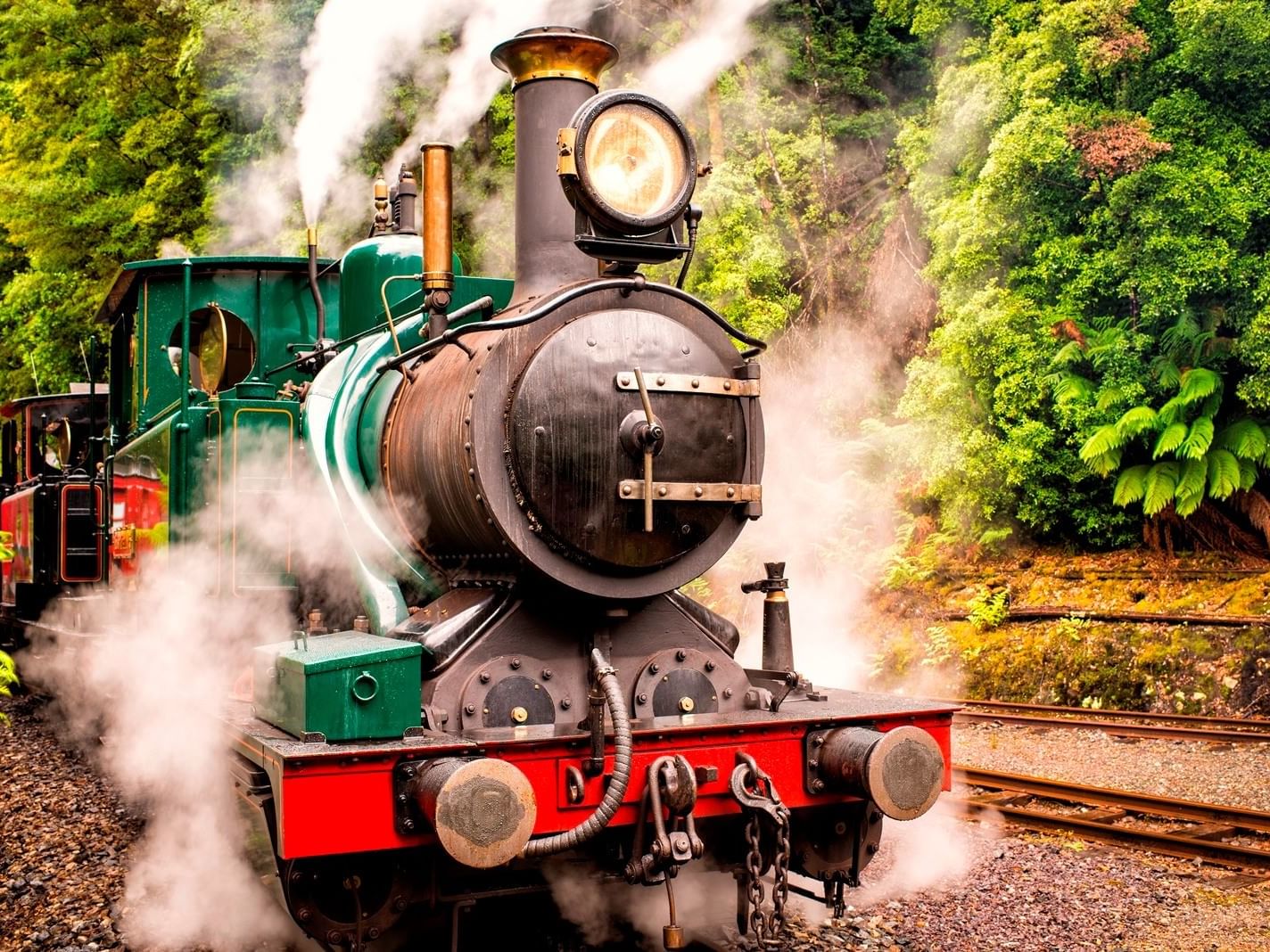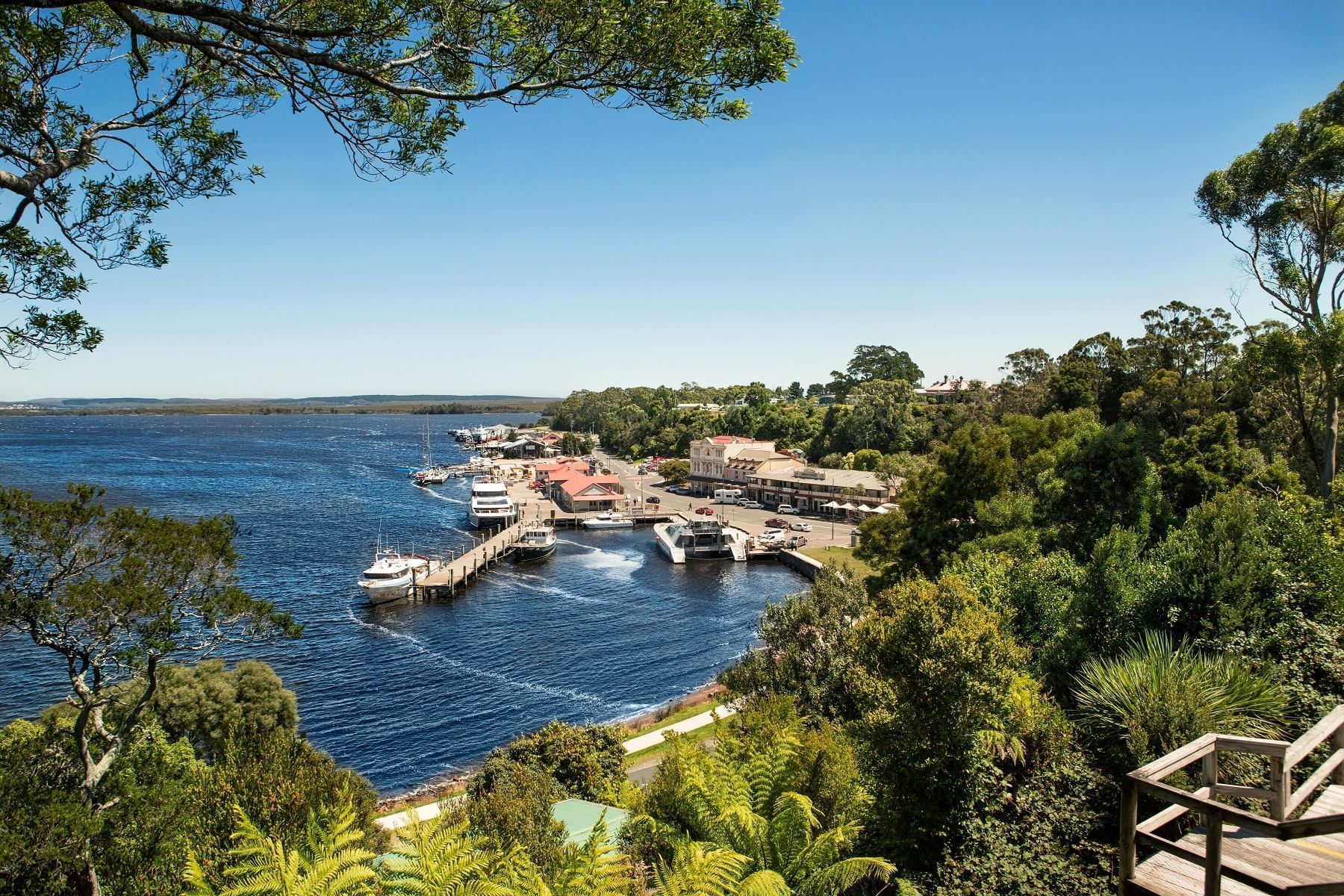
A short trip
just outside your comfort zone
Situated on the banks of Macquarie Harbour and the edge of UNESCO World Heritage Wilderness, the small town of Strahan is home to ancient rainforest, rugged history and west coast spirit.

History
Tasmania's west coast isn't for the faint hearted. It's rugged, untouched, unforgettable and has endured hard times.
Our rich history begins before the arrival of Europeans - Macquarie Harbour was home to the Toogee Aboriginal people for around 35,000 years. When James Kelly arrived in 1815, years of pining, shipbuilding and convict labour on Sarah Island and surrounds ensued.
Strahan came into existence in 1877 and was a bustling base for the Mt Heemskirk tin mine workers. With a railway operating to nearby Queenstown, Strahan was the second busiest port in Tasmania.
In the 1980s Strahan made headlines as activists fought for the Gordon River to be protected. In 1982, the pristine waters of the Gordon and Franklin rivers, were declared a UNESCO Tasmanian Wilderness World Heritage Area, to be preserved for the rest of time.
Today, just over 650 people call Strahan home. Tourism and aquaculture remain strong industries in our little harbour-side town.
Flora and Fauna
Out in the western wilds, you're bound to meet some furry friends and spot some rare species found no where else in the world. Whether you're cruising along the Gordon River, exploring the rainforest or relaxing by Macquarie Harbour, keep your eyes peeled for:
- Tasmanian devils
- Leatherwood trees
- Eastern barred bandicoots
- Huon pine
- Little penguins
- Platypus
- Wallabies
- White-bellied sea-eagles
- Bottlenose dolphins
- Colourful fungi
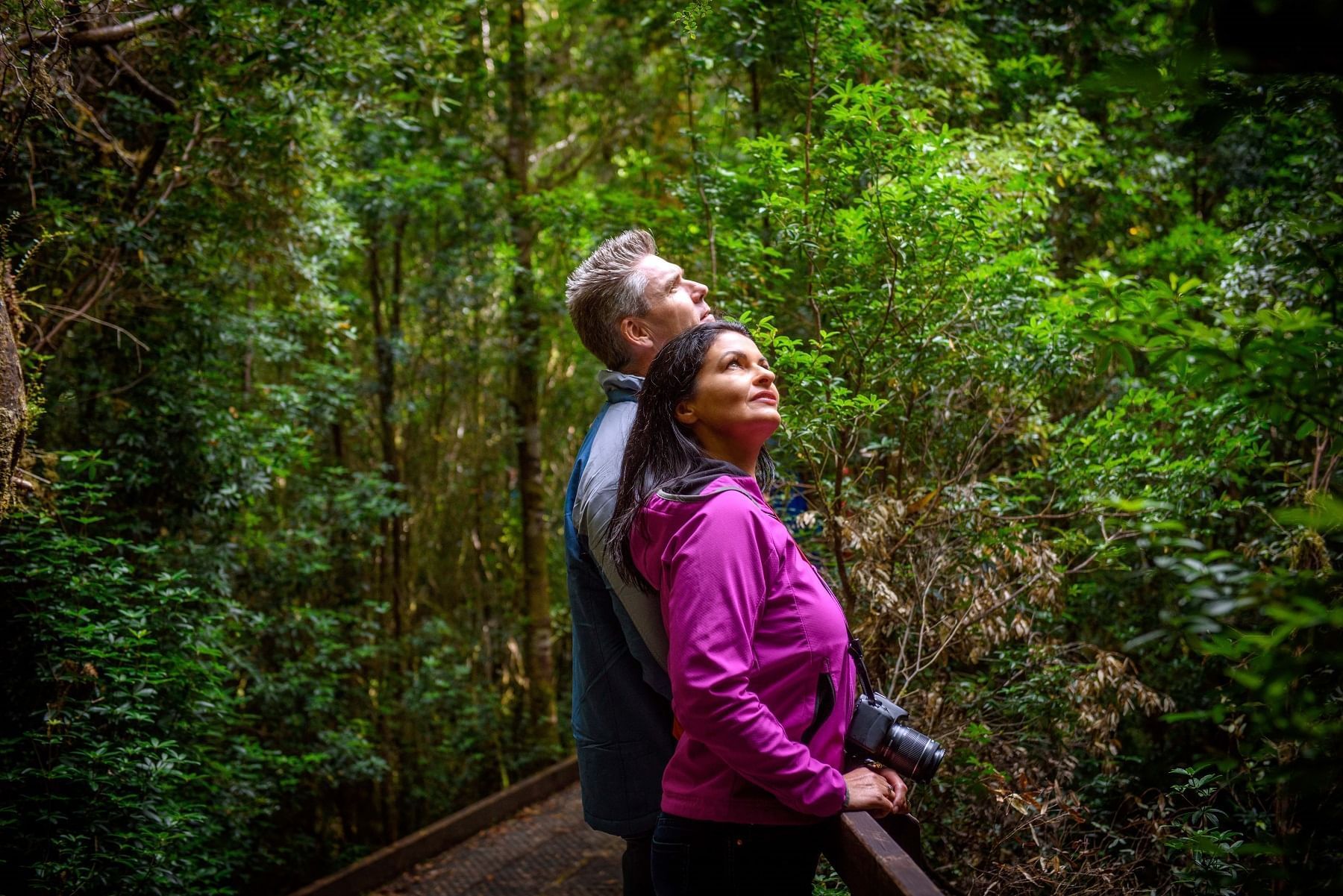
Our blog
When you visit Tasmania’s remote west coast, you won’t just see the wild side – you’ll live it. The quaint seaside village of Strahan serves as the gateway to the Tasmanian World Heritage Wilderness Area, where intrepid visitors can explore one of the most isolated places in the world. You’ll discover untouched nature, darkly fascinating local history, and inspiring cuisine showcasing Tasmania’s world class produce.
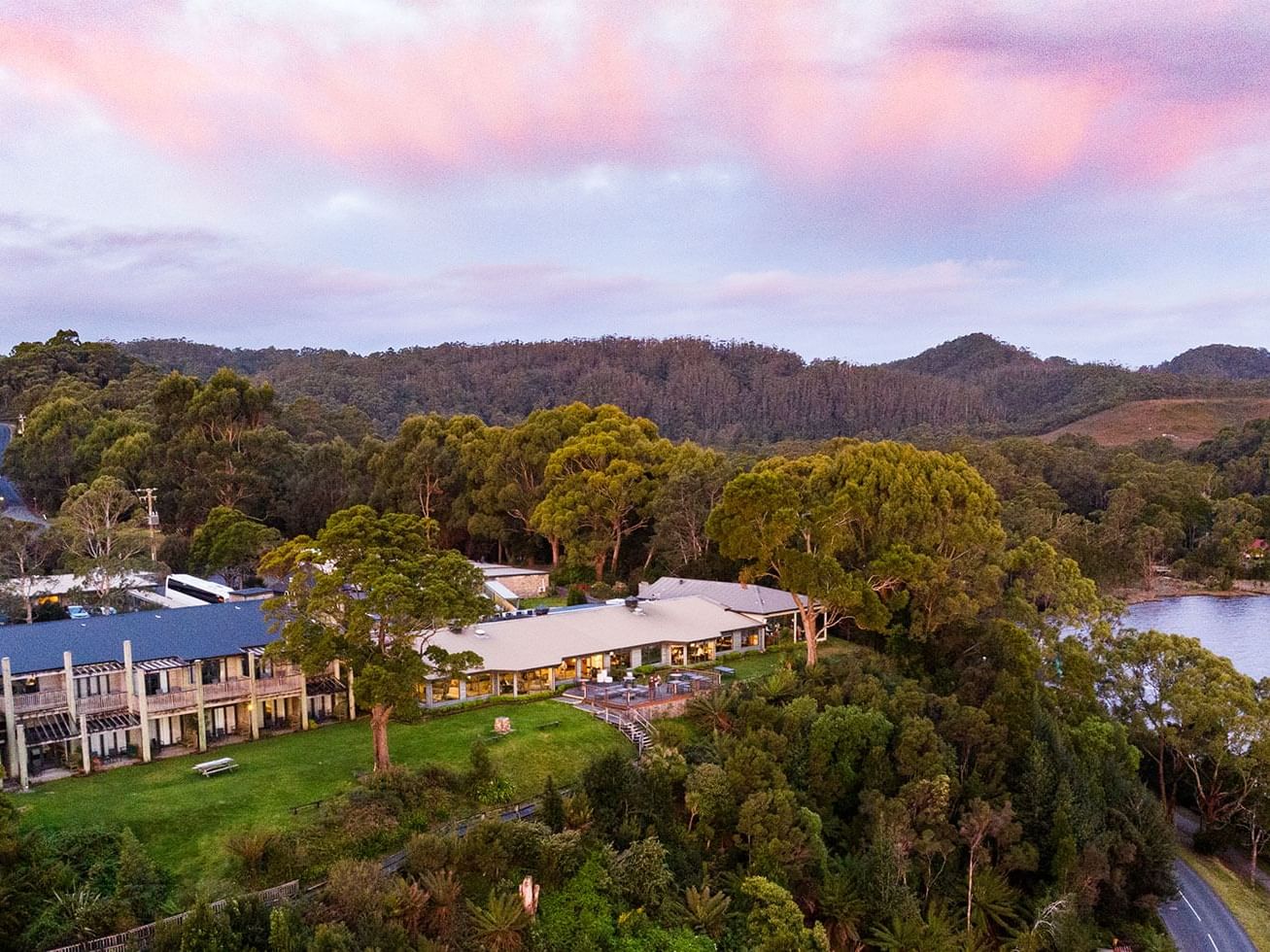
Home to UNESCO World Heritage Wilderness, mining history and quirky towns, the west coast is jam-packed with family friendly adventures. For the road-trippers joining us from northern Tasmania, we’ve put together the ultimate list of kid-approved pitstops, sure to replace the dreaded ‘are we there yet?’ with ‘where to next?!’.
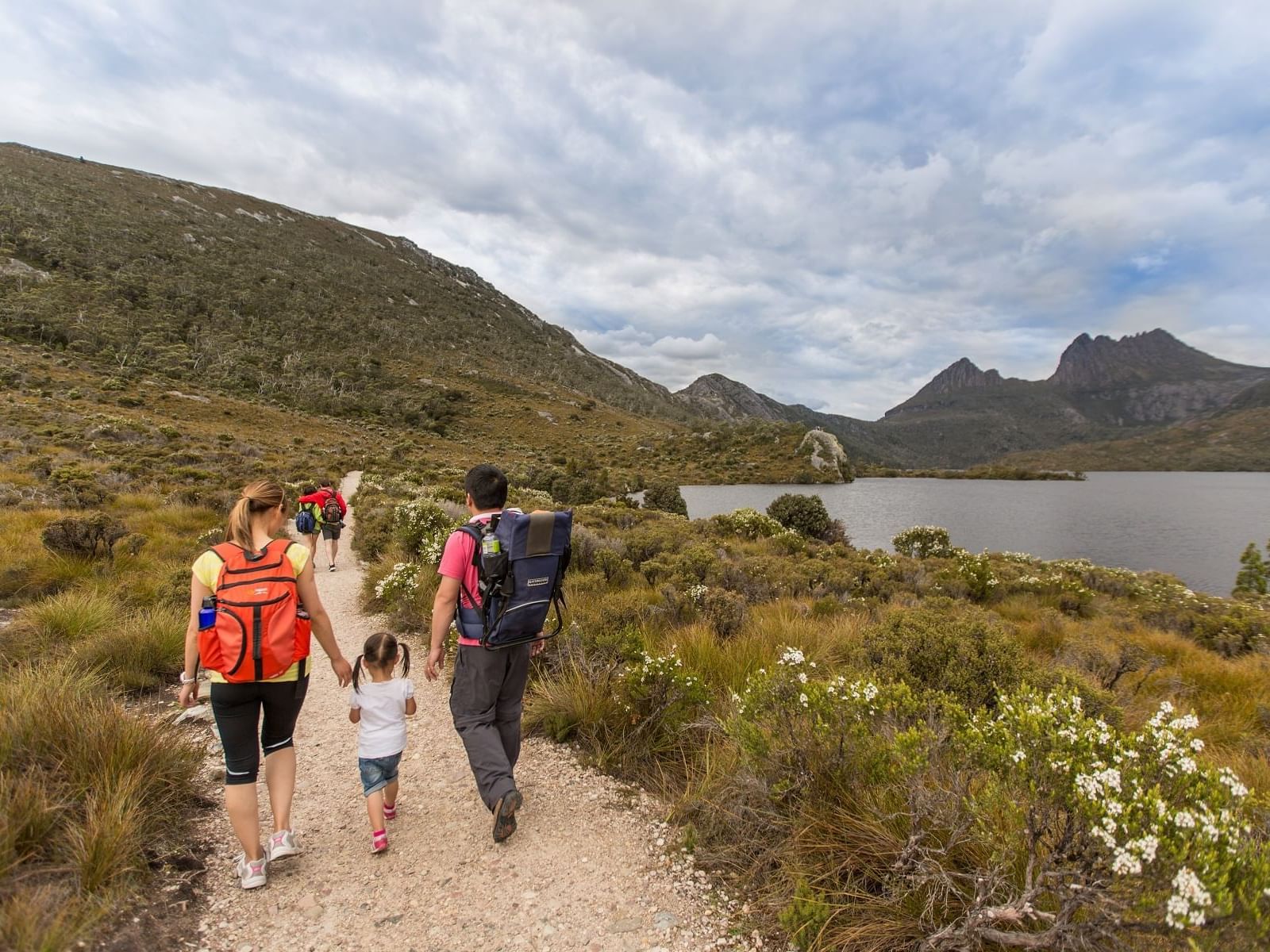
We know it can be a fair drive heading out west, especially with the little ones in the back. But the Lyell Highway is packed with kid-friendly pitstops that’ll make your journey across to Strahan one to remember.
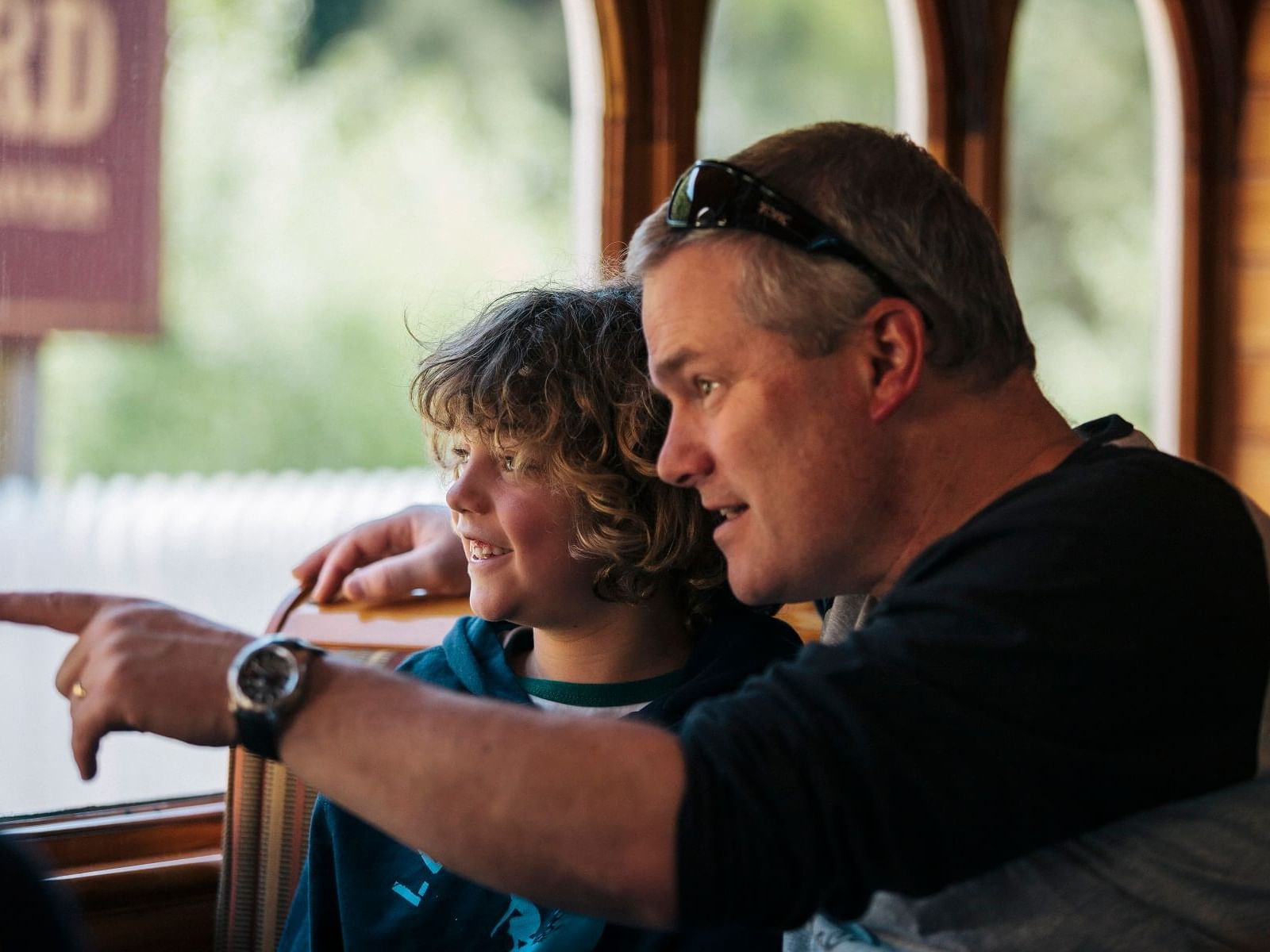
With Tasmanian school holidays coming up soon, we asked two of our local experts about their tips for enjoying the west coast with the kids. Jenni Klippert is our Front Office Manager and Leanne Hays is the Retail Manager at the award-winning Gordon River Cruises.
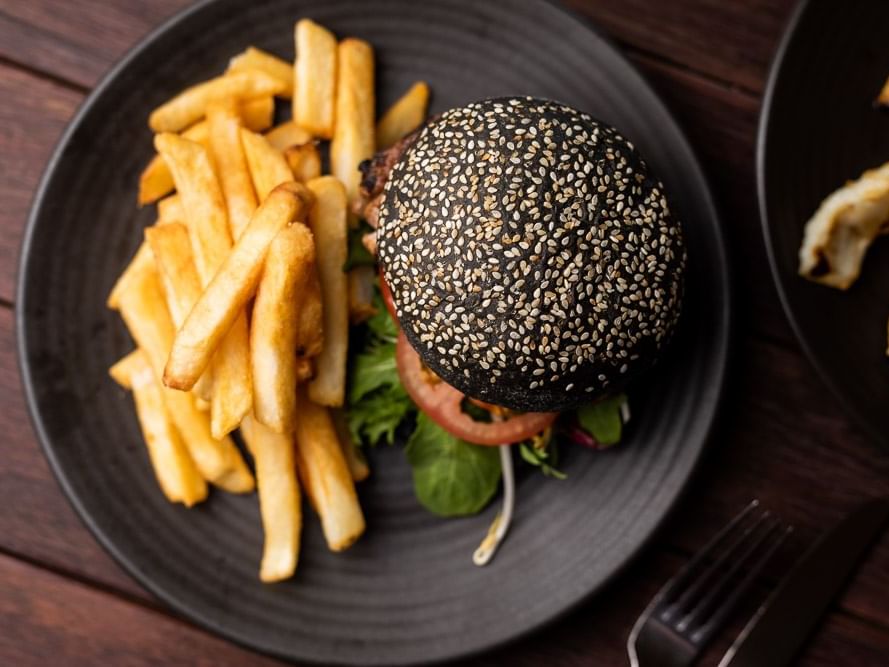
As one of Tasmania’s favourite experiences prepares for recommencement, we caught up with Ashley from the West Coast Wilderness Railway to hear about the upside of downtime and any changes to the railway experience to look out for in September 2020.
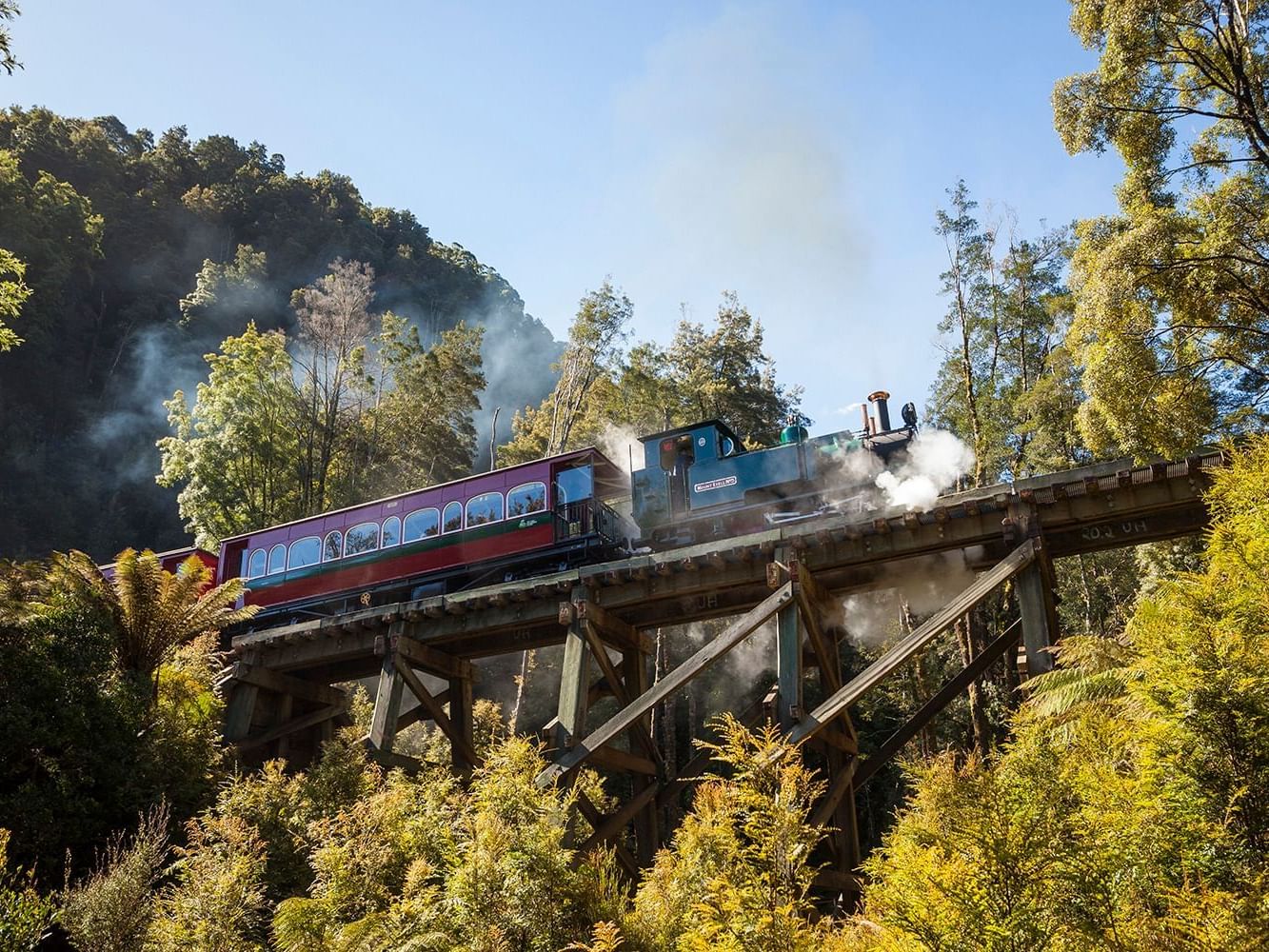
After spending a few months cooped up indoors, there’s no better excuse to get out and explore the Tassie wilderness. Tasmania’s west coast is a truly remarkable place, filled with natural beauty and opportunity for adventure around every corner. We sat down with a couple of our team members to unpack the ideal west coast itinerary for a long weekend away in winter.
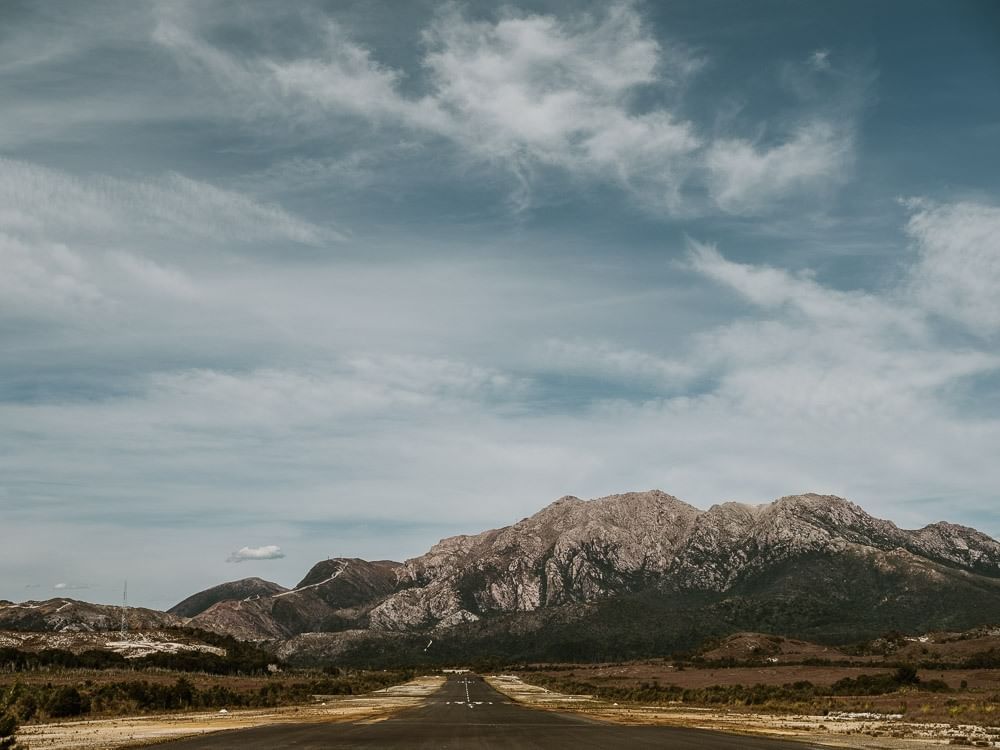
At Strahan Village we are excited to be back welcoming Tasmanians for a west coast getaway. We recently had a chat with general manager, Todd Roberts to learn about recent updates across the business to help deliver an unforgettable guest experience whilst adhering to coronavirus safety regulations.
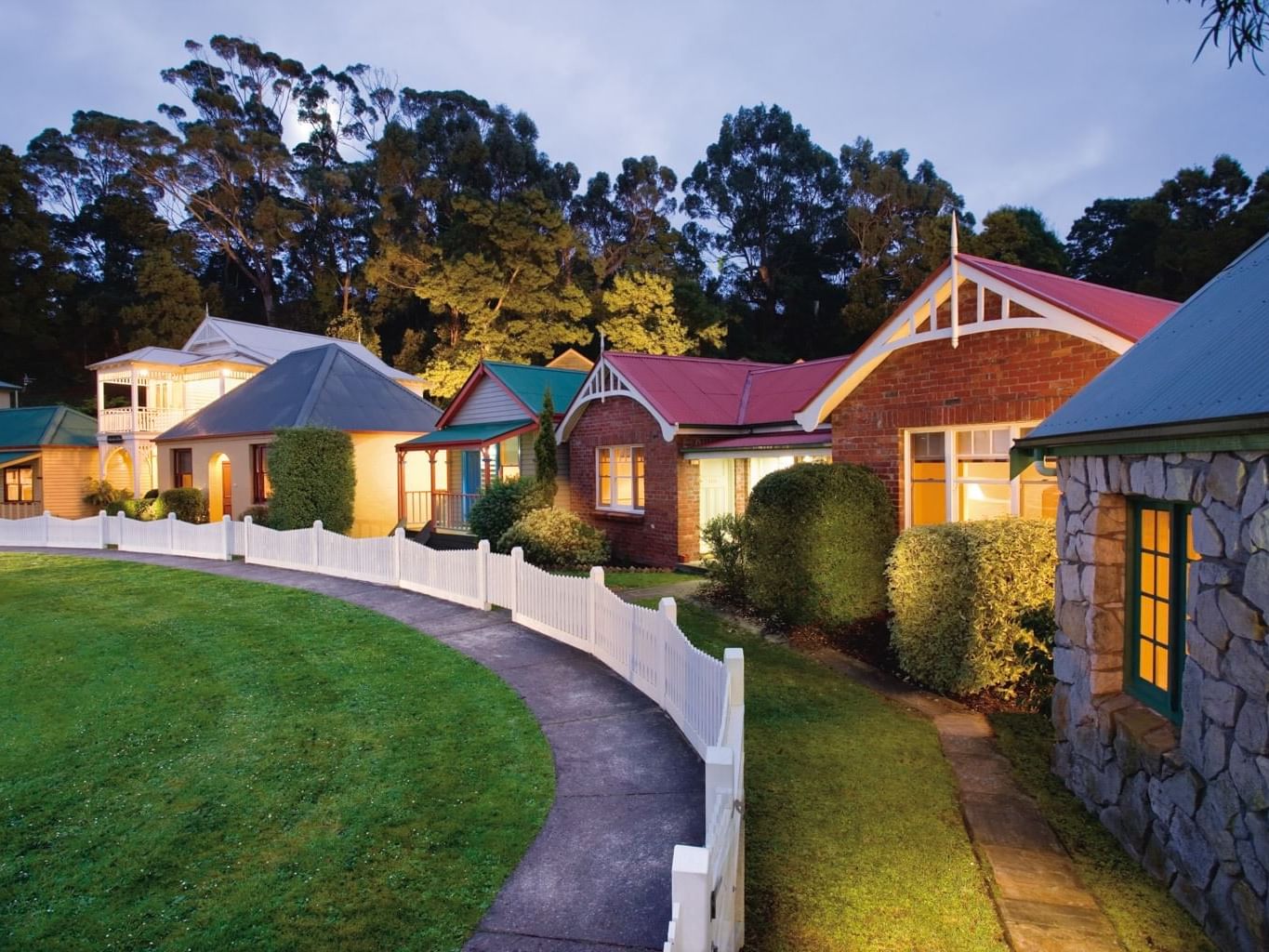
Tasmania’s wild west coast is a place like no other. Rich in natural and human history, it is the gateway to Tasmania’s UNESCO Wilderness World Heritage Area. Despite its remote location, the ancient forests, harsh terrain and historical towns are easily accessible through a scenic drive or flight.
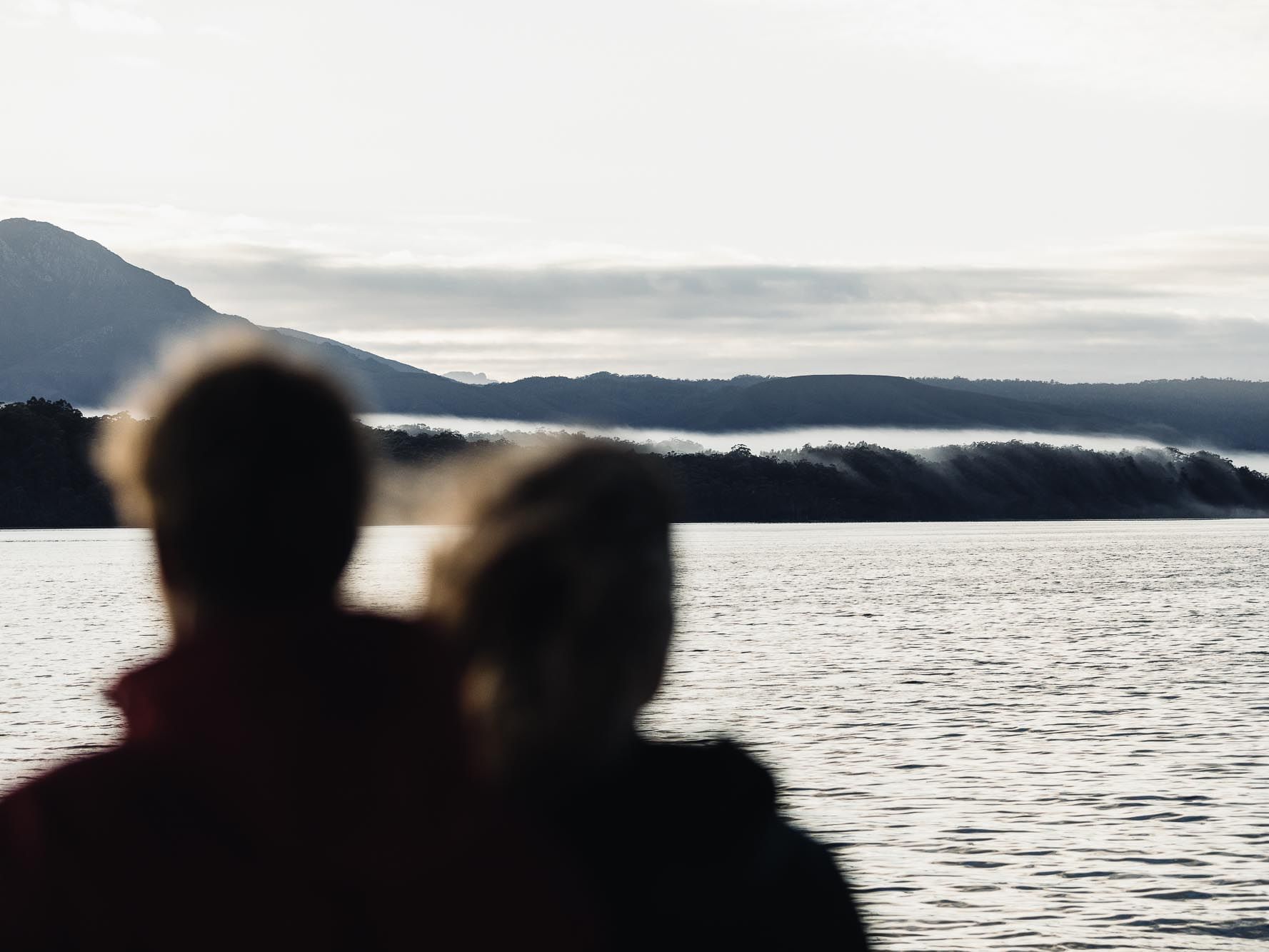
I moved to Brisbane from Sweden 4 years ago and quickly realised that taking a long weekend is embedded in the Aussie culture. With that in mind, my partner Calum and I took the Friday off work to explore Strahan. Despite being Tassie locals since 2018, we weren’t sure what to expect as neither of us had been further west than Mt Field. Our neighbour described Strahan as a rugged place which used to be the holiday town for just as rough miners but assured us it changed since then.
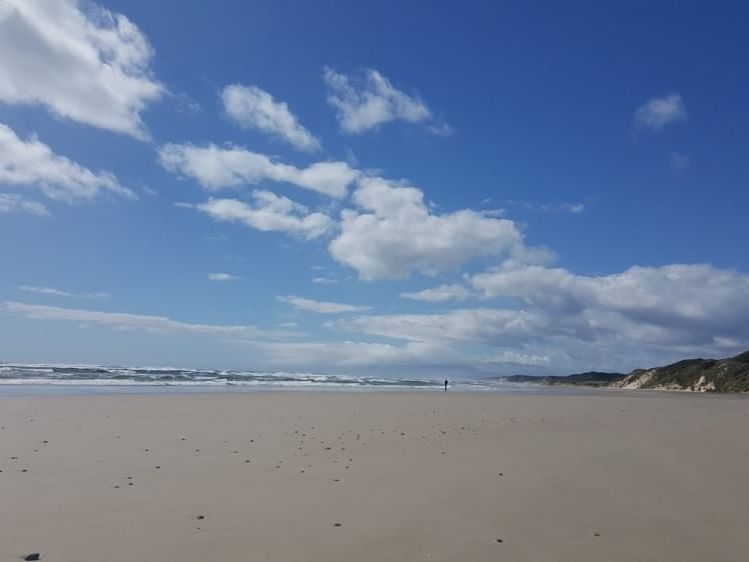
Starting at the Parks and Wildlife Visitor Centre, you can pick those who just completed the Overland Track with their boots off and toes bare. As soon as you start the walk, you’re surrounded by silver wattles and waratahs. The bustling sound of hikers seems miles away. It’s a leisurely walk on an easily accessible flat surface. At the end, where the two rivers meet, a picnic table is strategically placed for you to enjoy a little snack. I’d recommend walking along the beach back. The lake reflections are out of the ordinary and if lucky you might have the pleasure of meeting the local Lake St Clair Echidna!
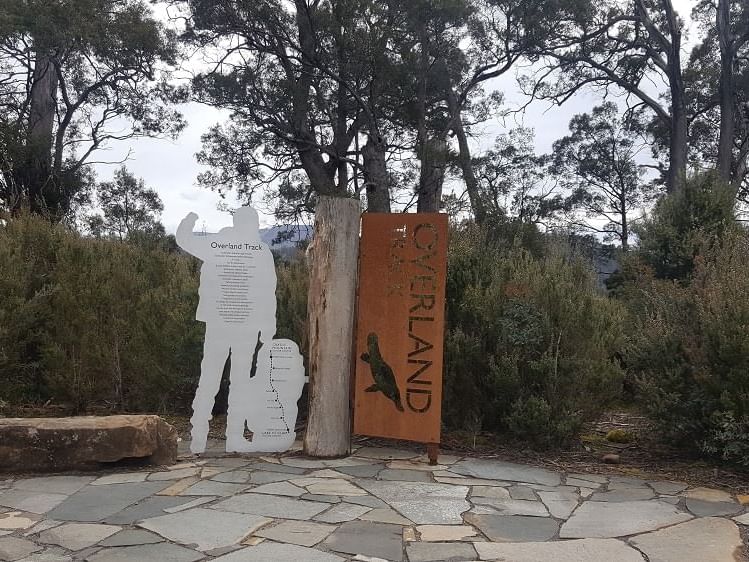
From Jocelyn Garcia, chef at Strahan Village
Makes 3-4 serves
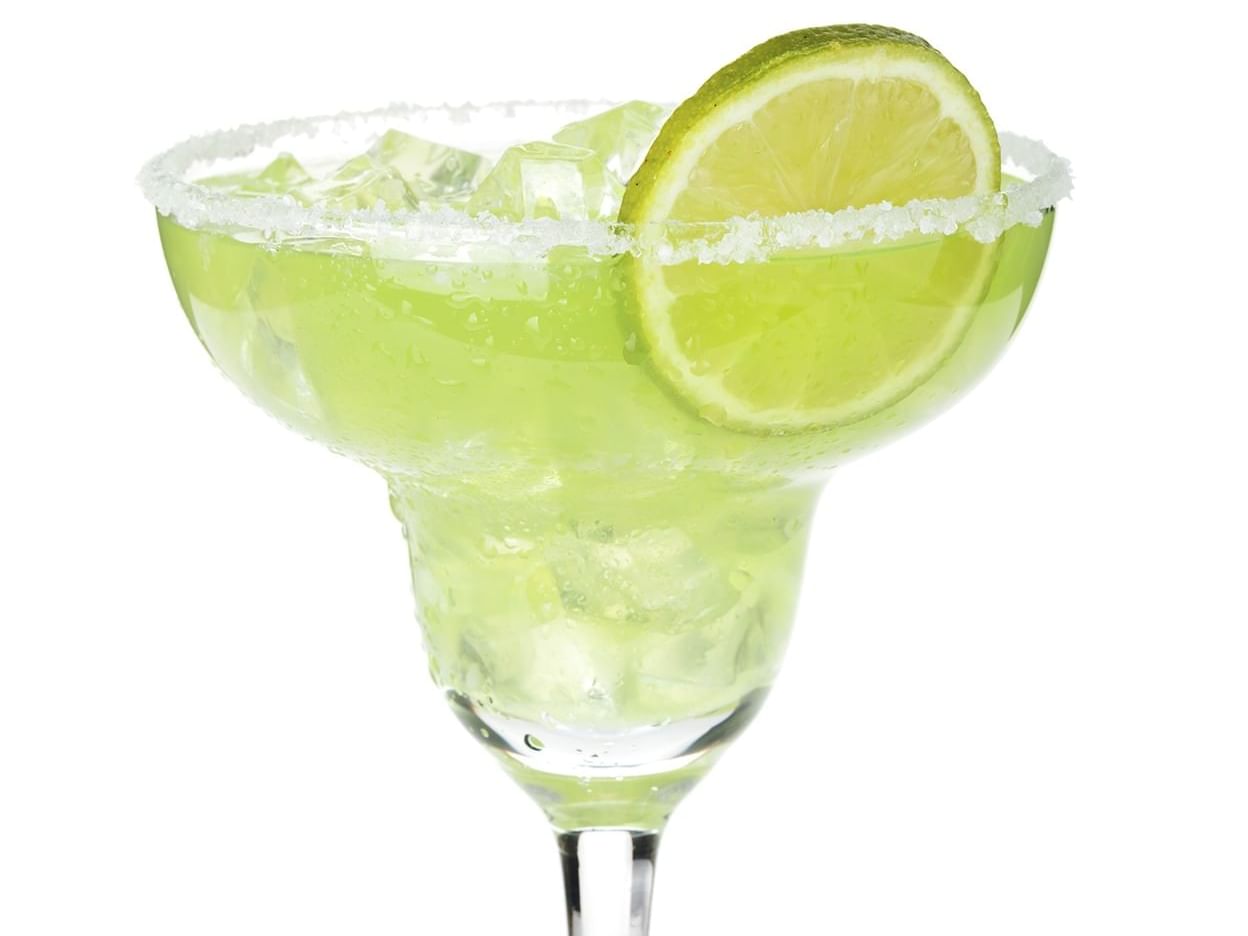
The forests, coastal heath, scrub and grassy plains of Tasmania’s west coast are a perfect habitat for many of the state’s marsupial species. Among the most frequently encountered of these are our pademelons, possums and wombats.
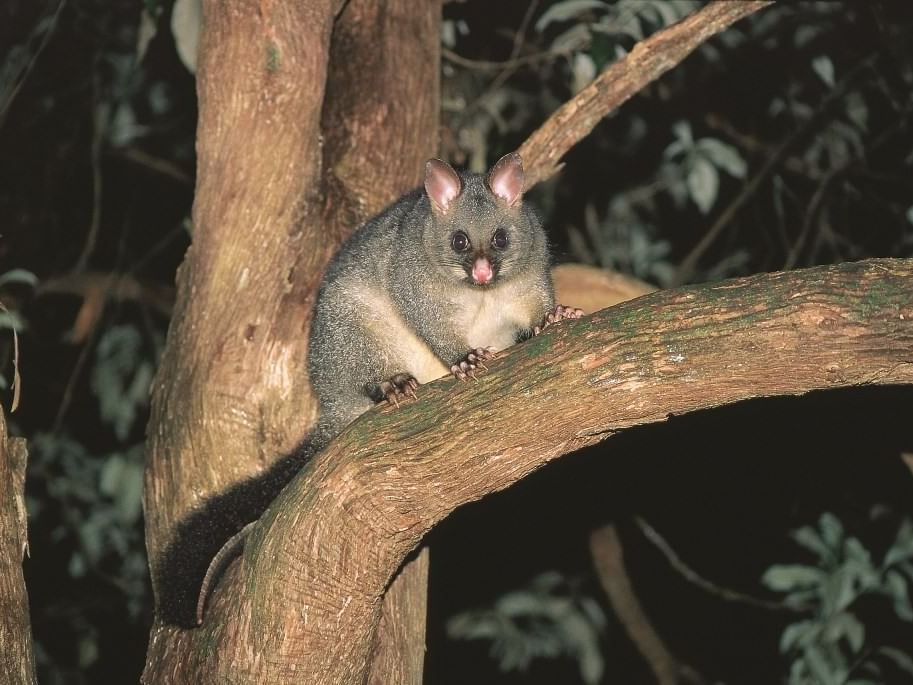
One of the west coast’s most endearing residents is the little penguin. This utterly charming little bird (also known as the fairy penguin) is the world’s smallest penguin, growing to a length of around 40 cm and weighing just one kilo when fully grown.
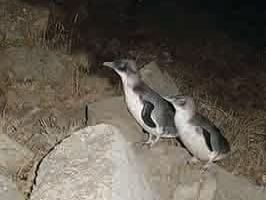
One of Tasmania’s most intriguing native animals is the Tasmanian devil.
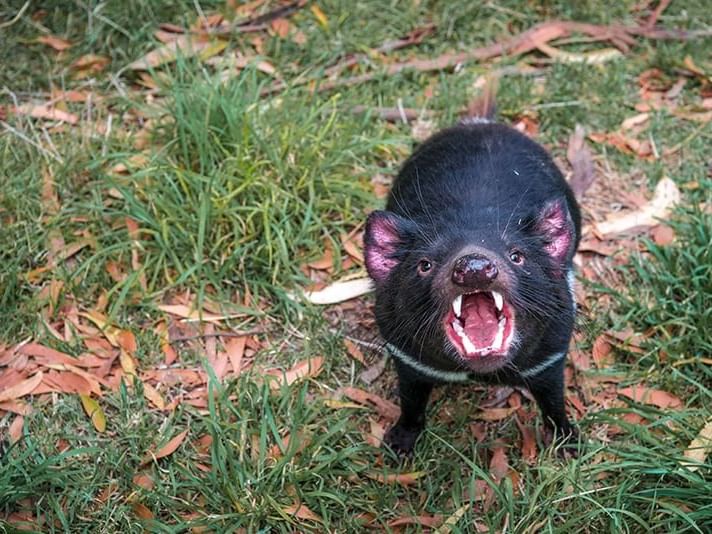
Tasmania’s west coast is home to a dazzling number of birds, and the protected forests of the Franklin-Gordon Wild Rivers National Park provide shelter for some of our rarest species.
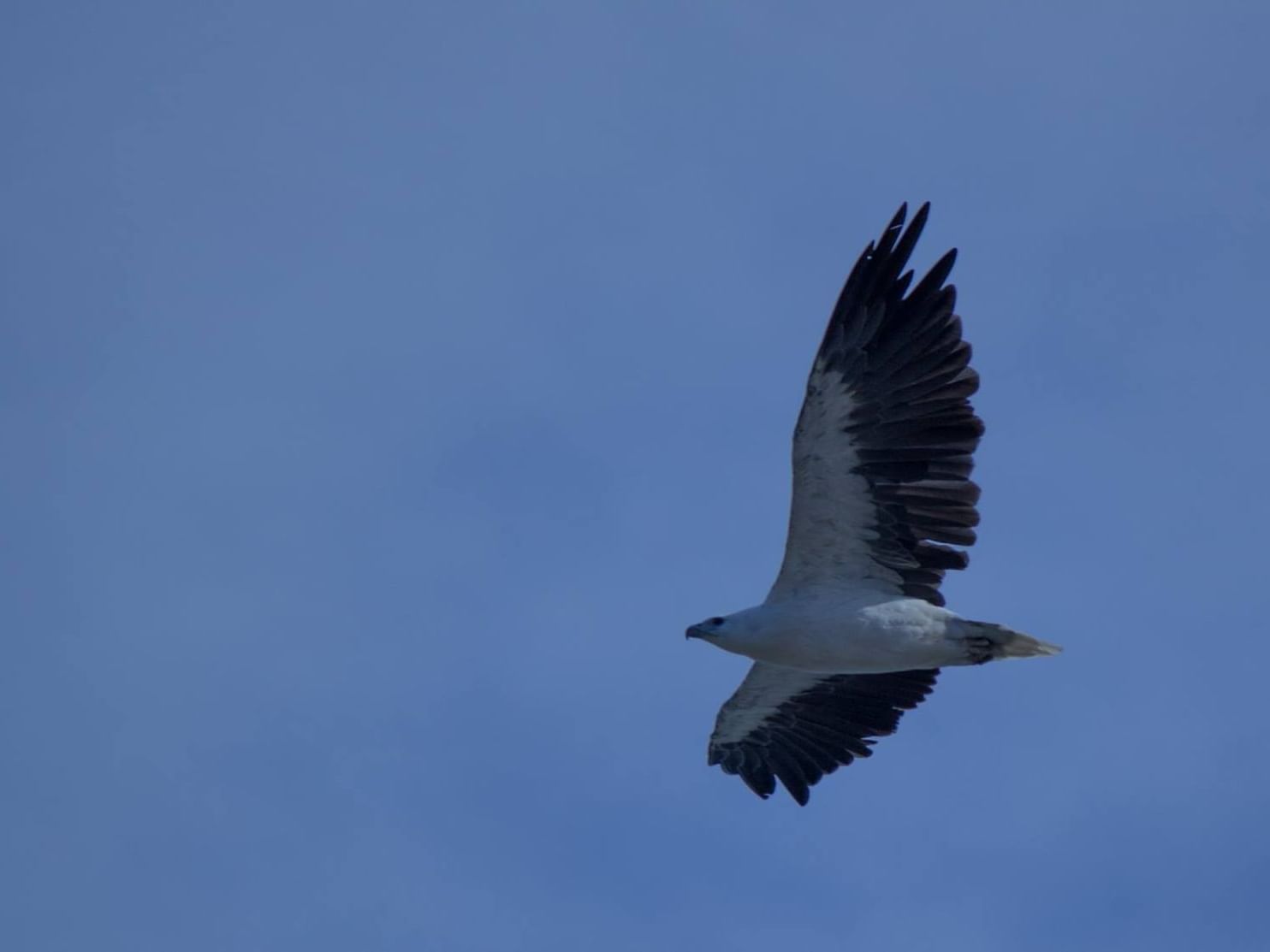
Strahan is located on the edge of Macquarie Harbour—a vast waterway that opens into the wild Southern Ocean through the narrow opening at Macquarie Heads—Hell’s Gates.
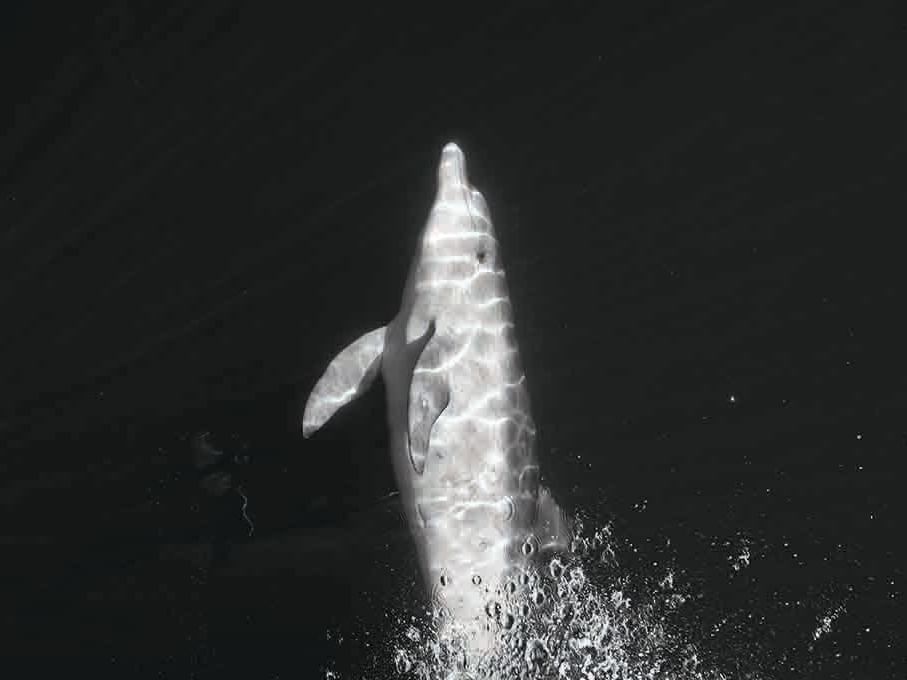
The west coast of Tasmania is home to two of Australia’s most intriguing animals—the platypus and the echidna.
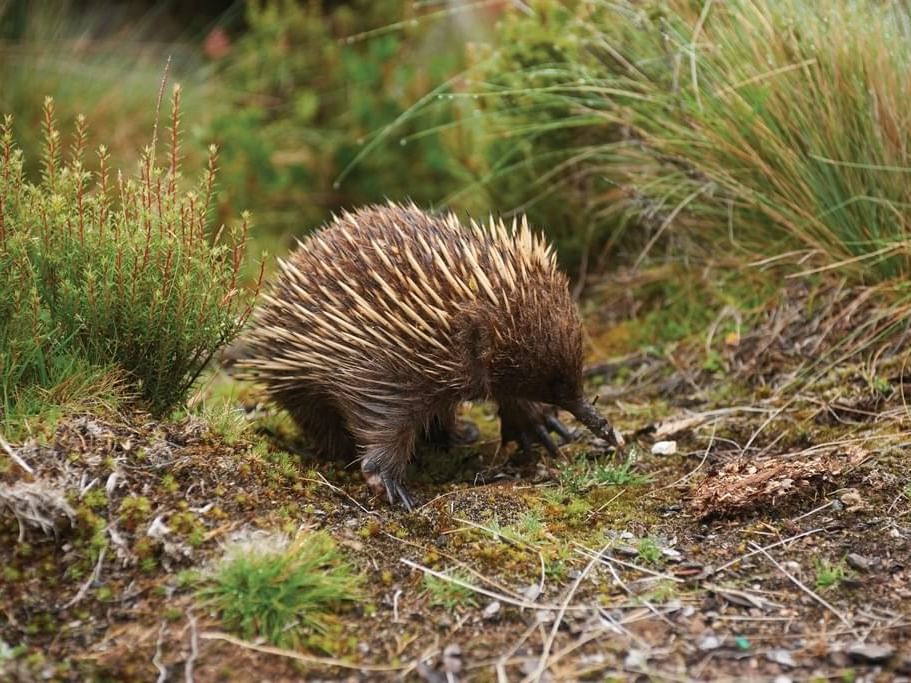
In spite of the island’s generally cool climate, Tasmania is home to a number of reptile species, ranging from small, jewel coloured skinks, to frogs and three species of snake. Tasmanian reptiles are active mainly during the warm summer months.
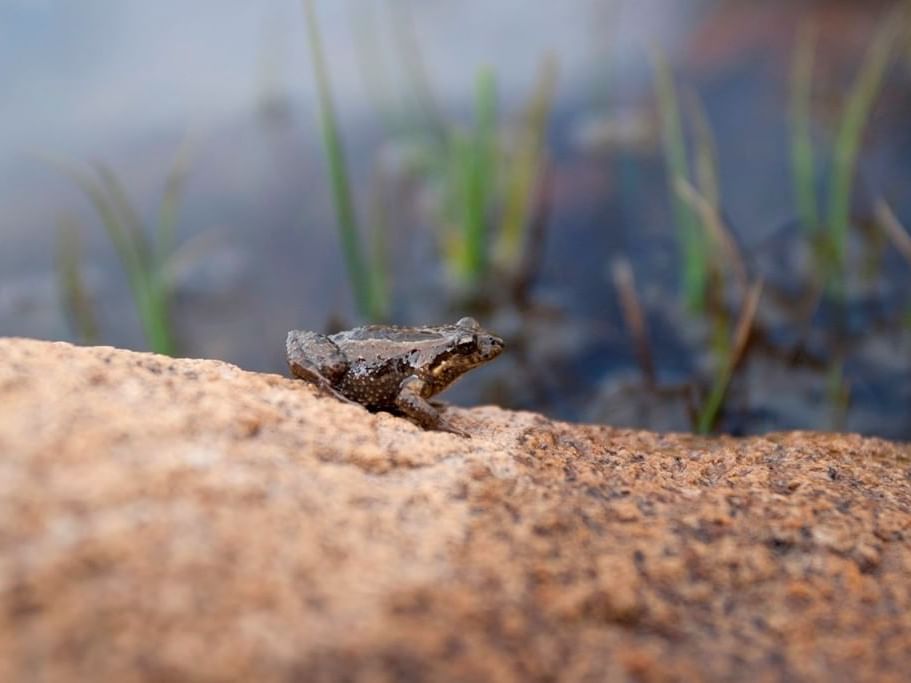
The discovery of Huon pine in the Gordon River led directly to the decision to establish Van Diemen’s Land’s first penal station on remote Sarah Island.
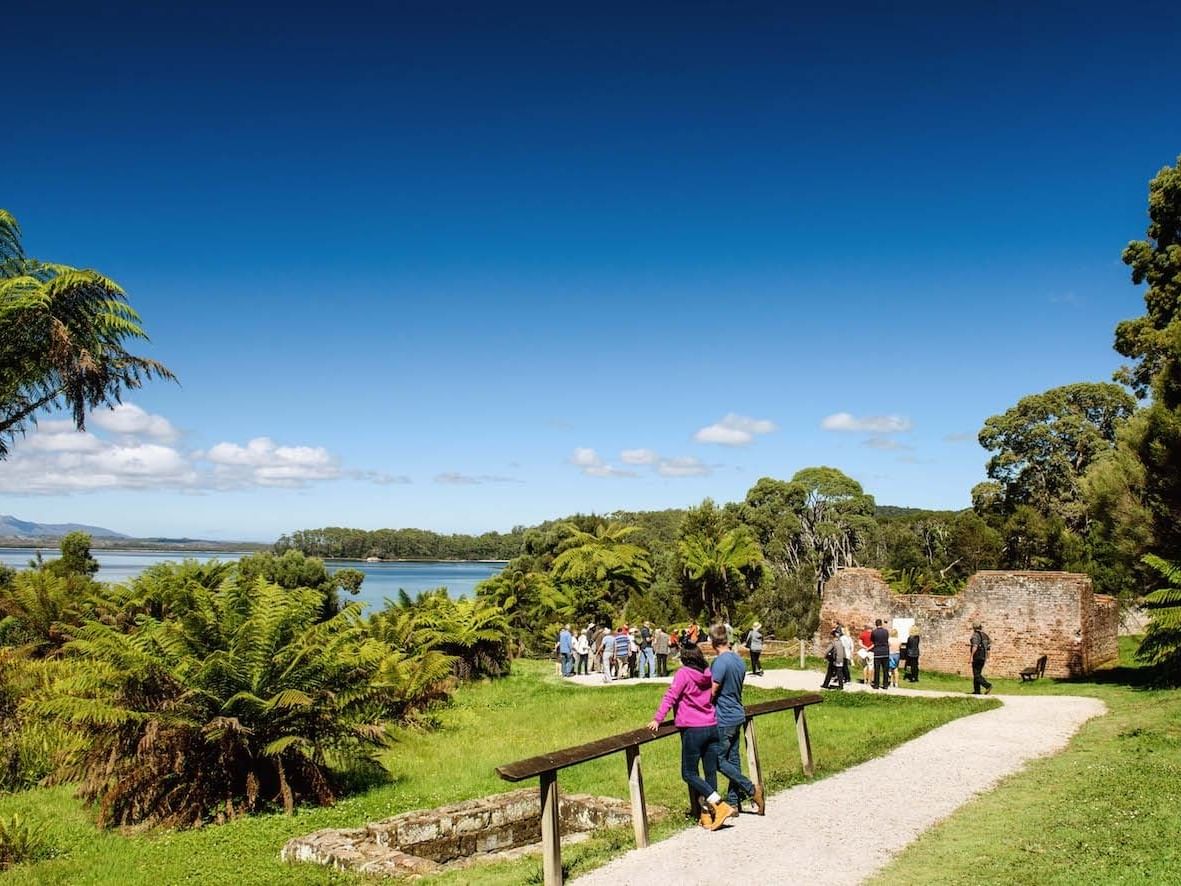
The rainforests of Tasmania’s remote west are not your typical, movie-set forests—all steaming jungle, hanging vines and coiling pythons. These protected rainforests are cool, dark and damp—peaceful havens where the trunks of rare trees are cloaked in velvety green mosses and lichens.
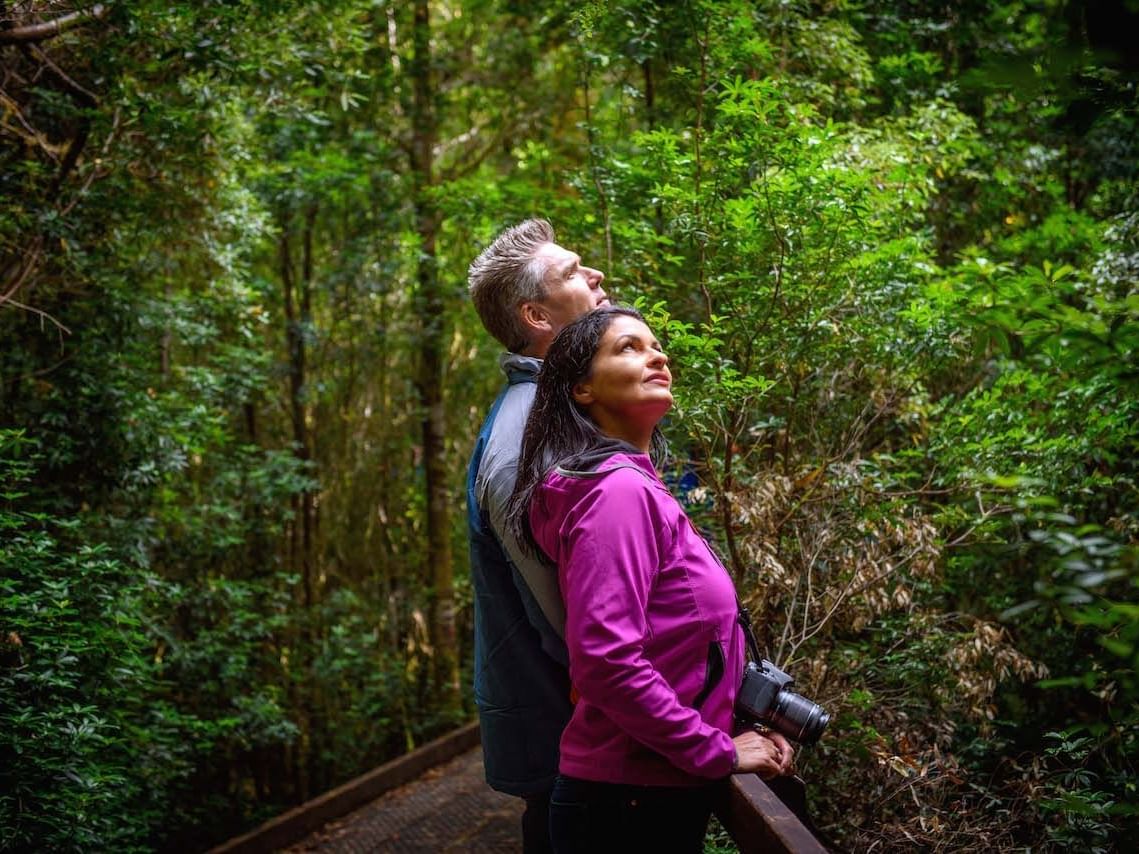
Rail has been a major part of Strahan’s history since the town was founded in 1880.
During the 1890s, mining development on the west coast created the need for rail services, and before long a network of narrow gauge railways and tramways were servicing mines throughout the region.
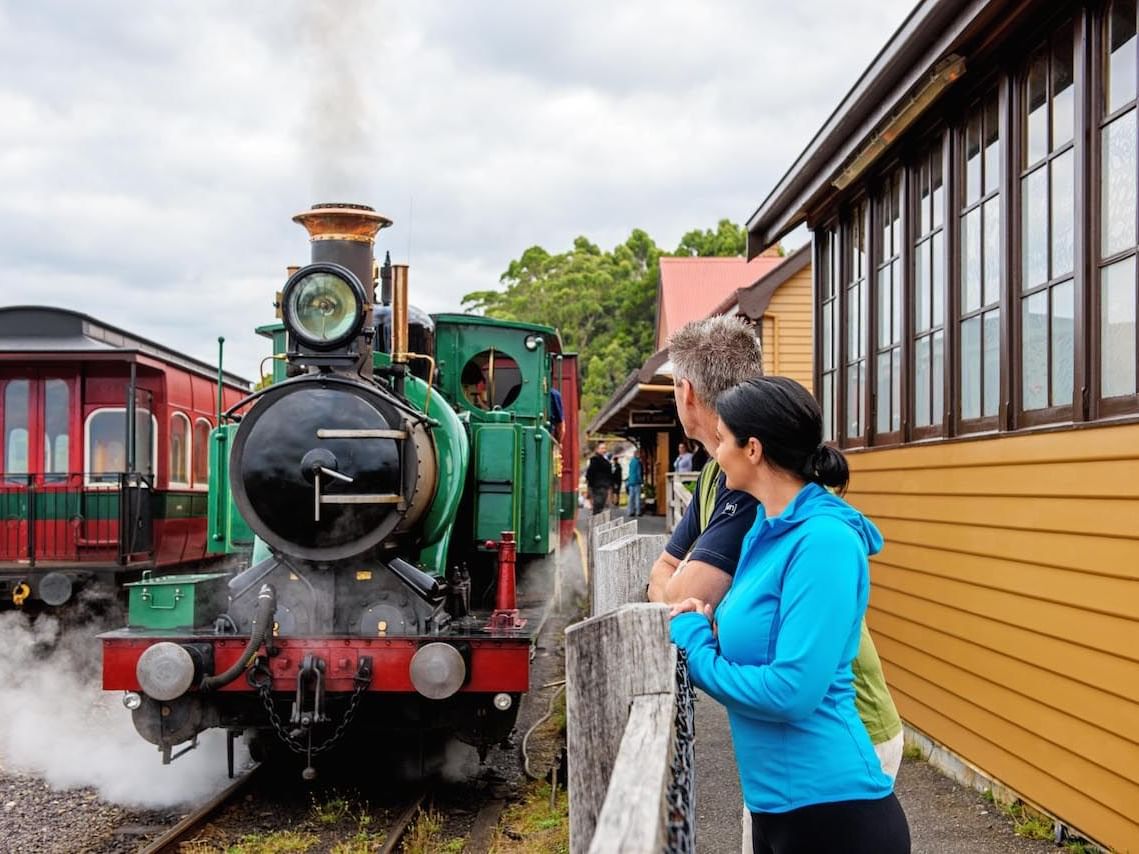
If you want to get a sense of just how wild, beautiful and remote Tasmania’s west coast really is, take some time to visit Ocean Beach.
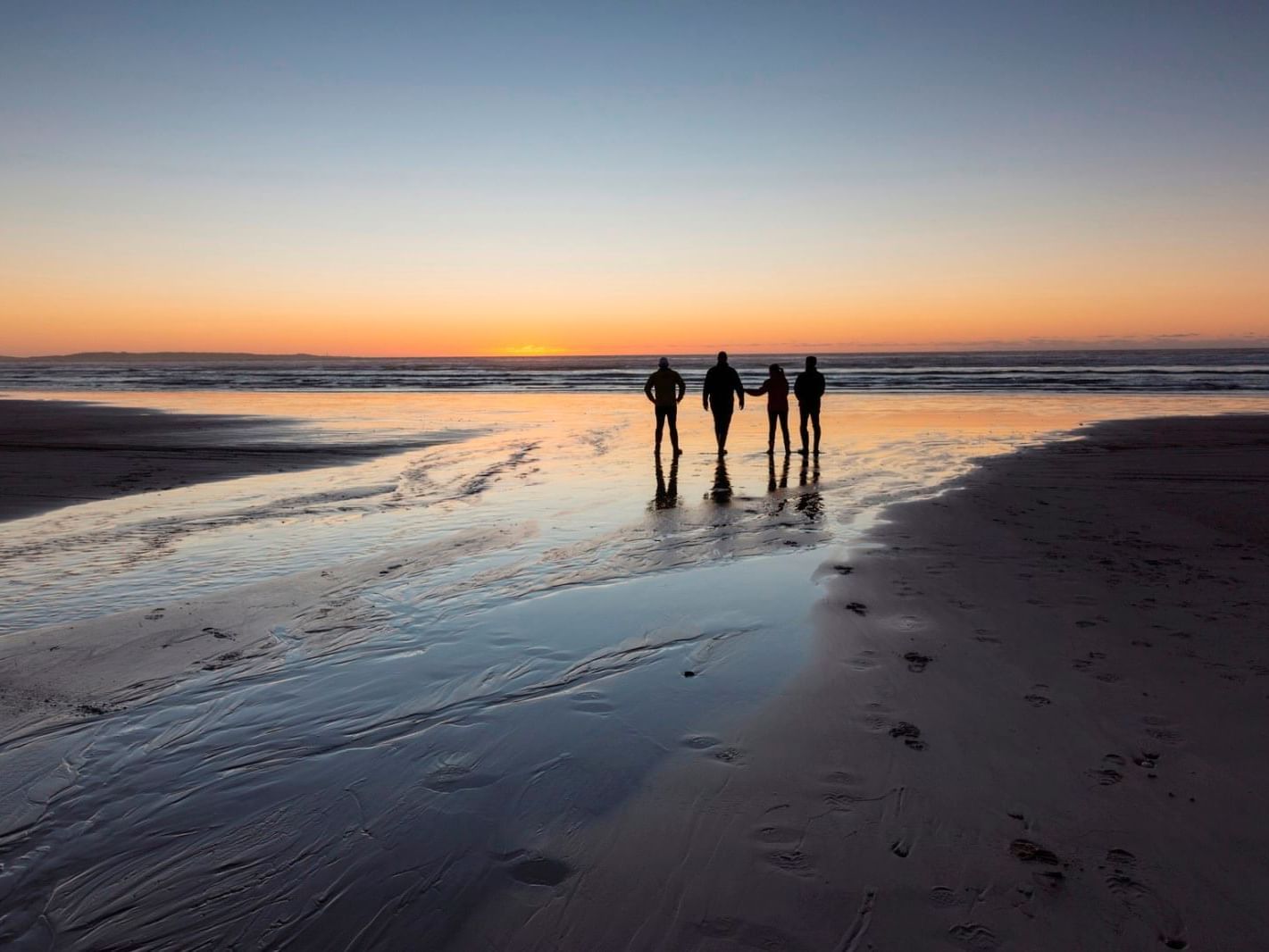
Macquarie Harbour is Australia’s second largest natural harbour, after Port Phillip Bay in Victoria. This vast waterway is six times the size of Sydney Harbour and measures 35 kilometres in length and nine kilometres across. While most parts of Macquarie Harbour are relatively shallow, it is up to 50 metres deep in some places.
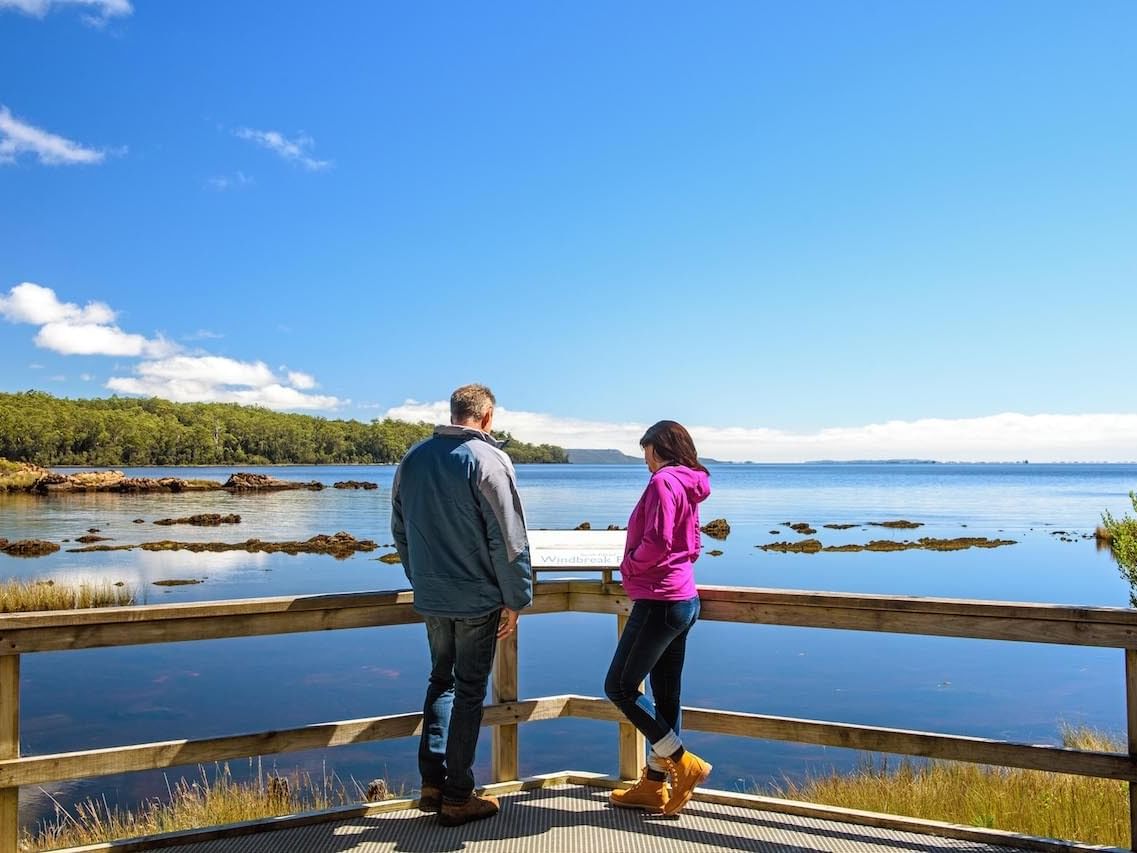
Tasmanian Aboriginal people have been part of this land for more than 35,000 years. Sometime during the last Ice Age, Aboriginal tribes crossed the land bridge spanning Bass Strait, becoming the most southerly-dwelling humans on Earth. When the glaciers retreated and sea levels rose around 12,000 years ago, Tasmanian Aboriginals became isolated from the mainland, developing a rich culture unlike any other on the planet.
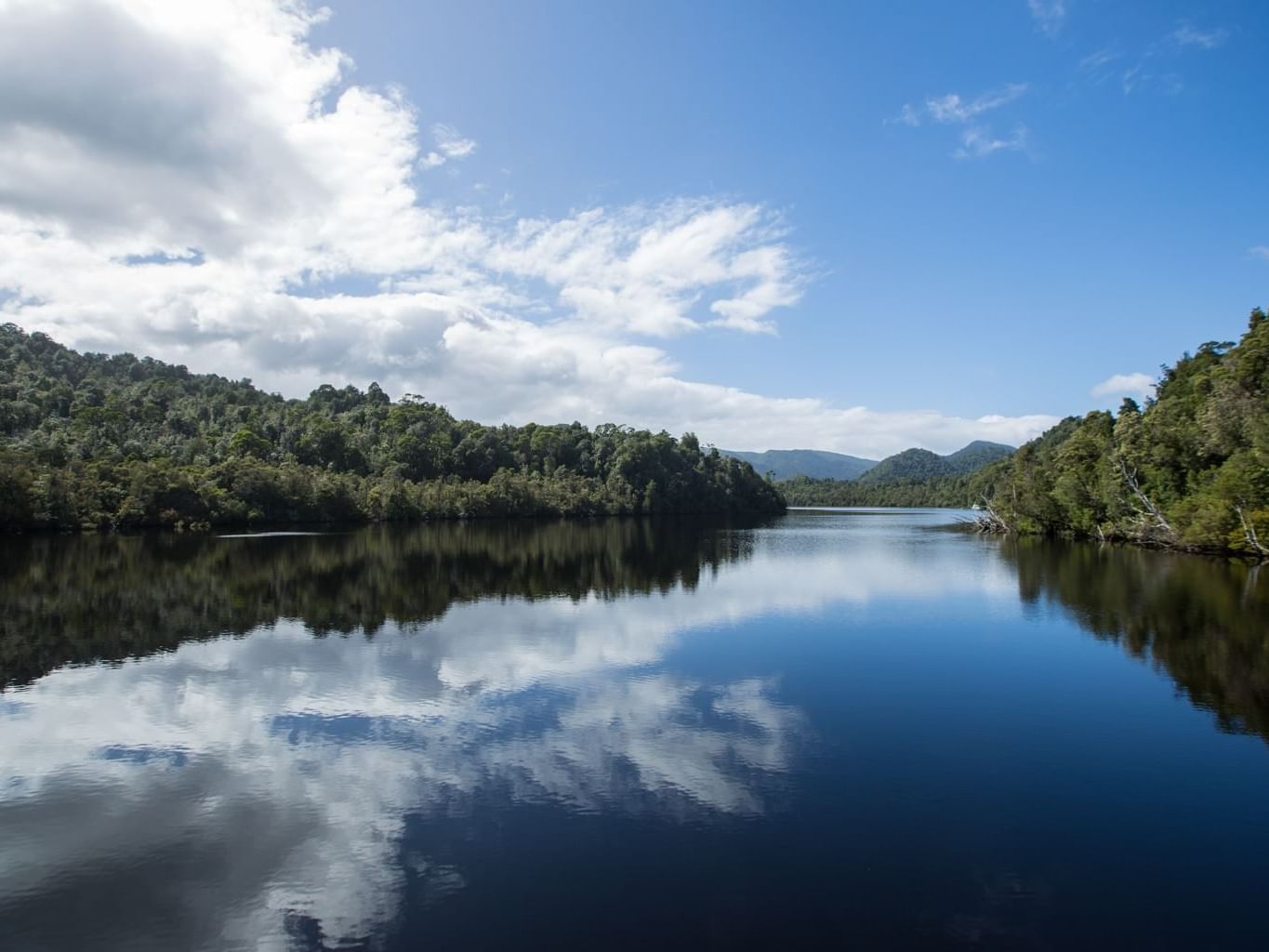
Tasmania is known for its exquisite rainforest timbers, and the most famous of these is undoubtedly Huon pine.
Huon pine (Lagarostrobos franklinii) is a native conifer that grows in the wet temperate forests of Tasmania’s south west wilderness. This is an extremely slow growing tree, with a growth rate of just 1mm per year. Huon pine is thought to live up to 3000 years and is Australia’s oldest living tree.
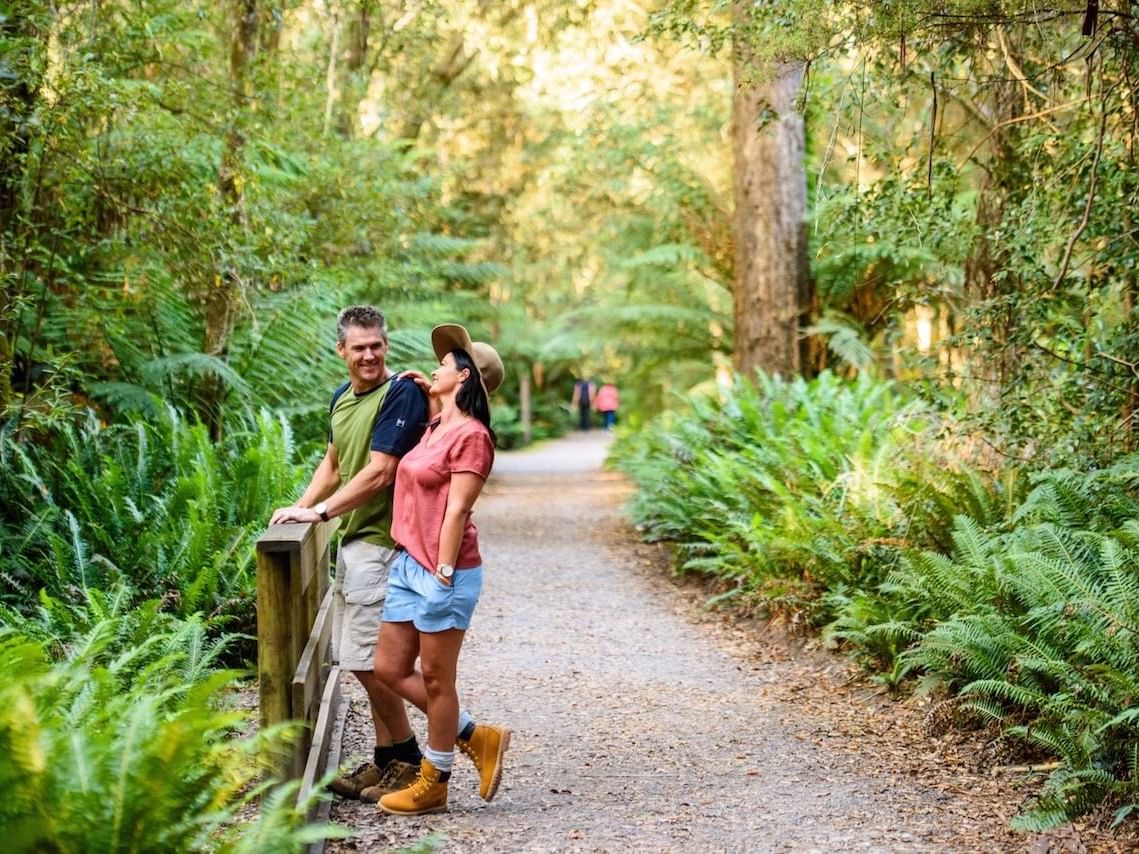
The elegant curves of the Gordon River have their origin at Lake Richmond in the King William Range, within the Franklin-Gordon Wild Rivers National Park.
This beautiful river flows west over 172 kilometres and descends 570 metres on its journey to Tasmania’s west coast, where it empties into Macquarie Harbour through the narrow opening at Hell’s Gates.
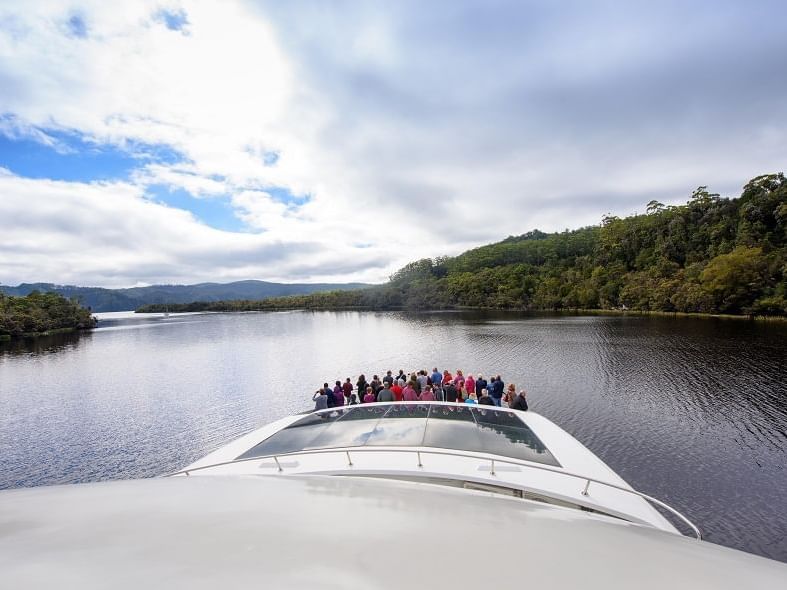
One of the best ways to discover Strahan is to take a walk along the town’s foreshore track. This hour long walk follows the path of the old Government Railway line that once ran between Strahan and Zeehan. Along the way, you’ll pass a number of historic buildings that each tell a fragment of the story of Strahan’s past.
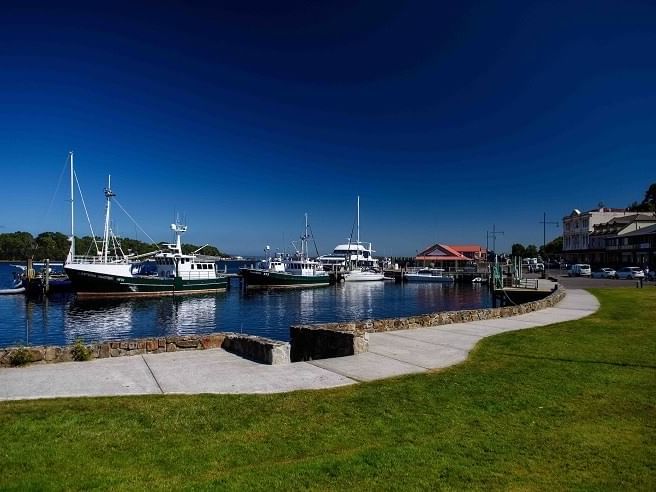
We couldn't be more excited to welcome the TODAY Show to Strahan for tomorrow's live broadcast. It's a huge event for our beautiful part of Tasmania and our community is ready to turn it on for the team from TODAY. Even the weather looks set to behave for the big day!
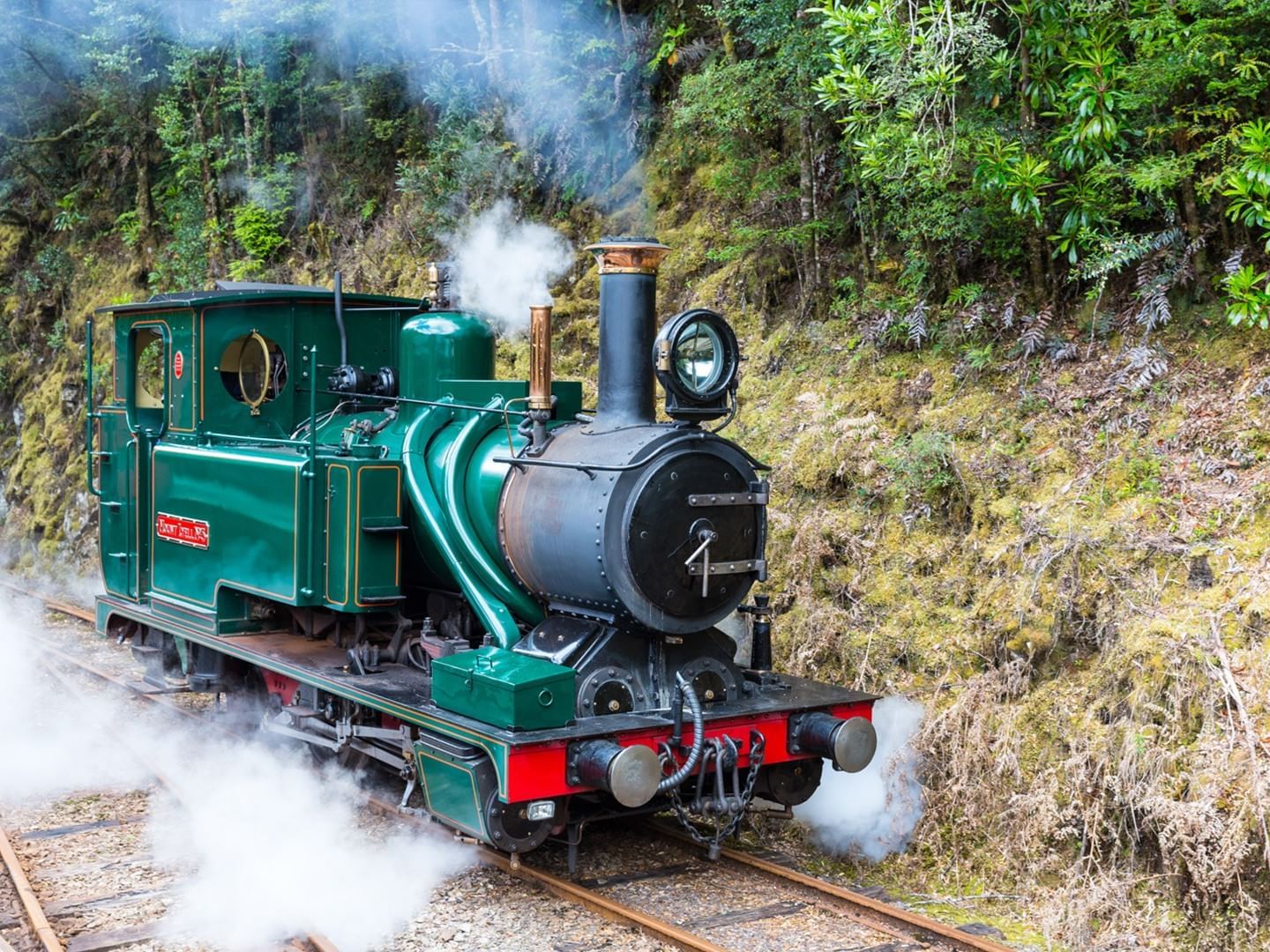
When you are traveling to Tasmania’s west coast, regardless of where you are driving from, the journey is part of the attraction.
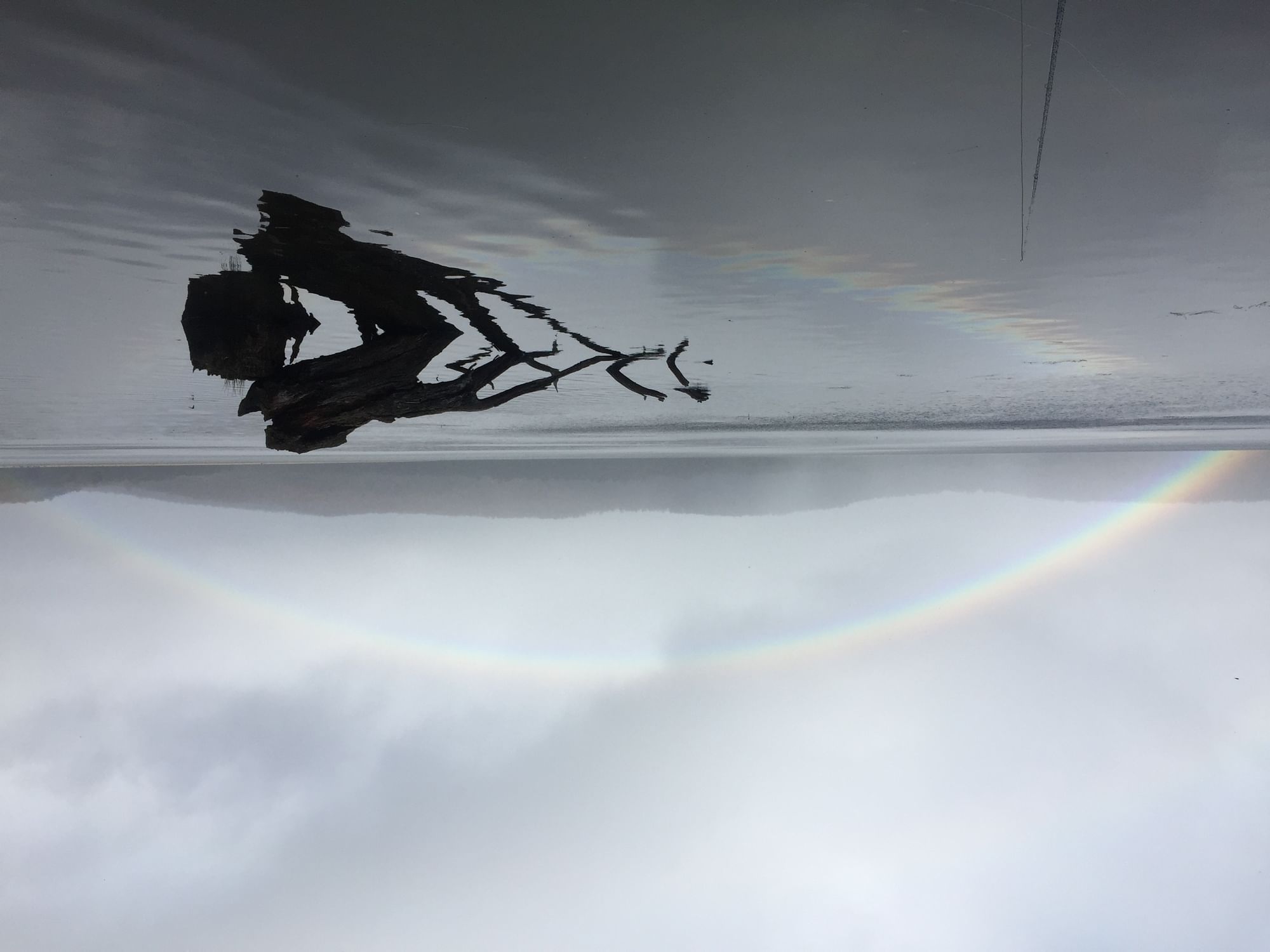
The West Coast of Tasmania is nothing short of spectacular and viewed from the air, it's even better.
Strahan Helicopters is a new scenic flight, transfer and charter helicopter tour operator in Strahan and we're excited to say a warm West Coast welcome to their team.
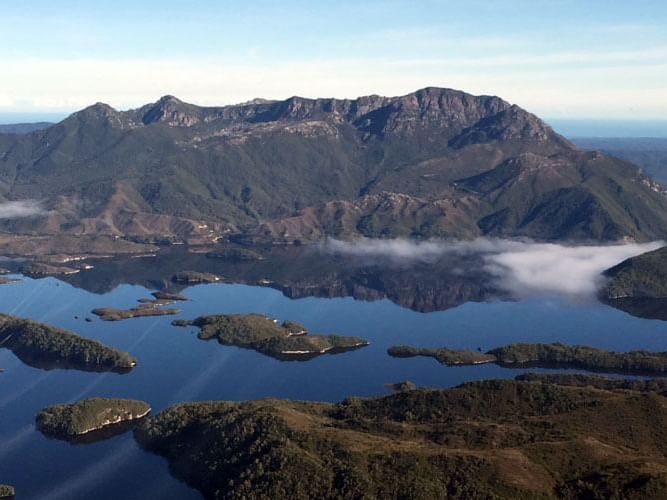
Day Five: Cradle Mountain Hotel to Devonport
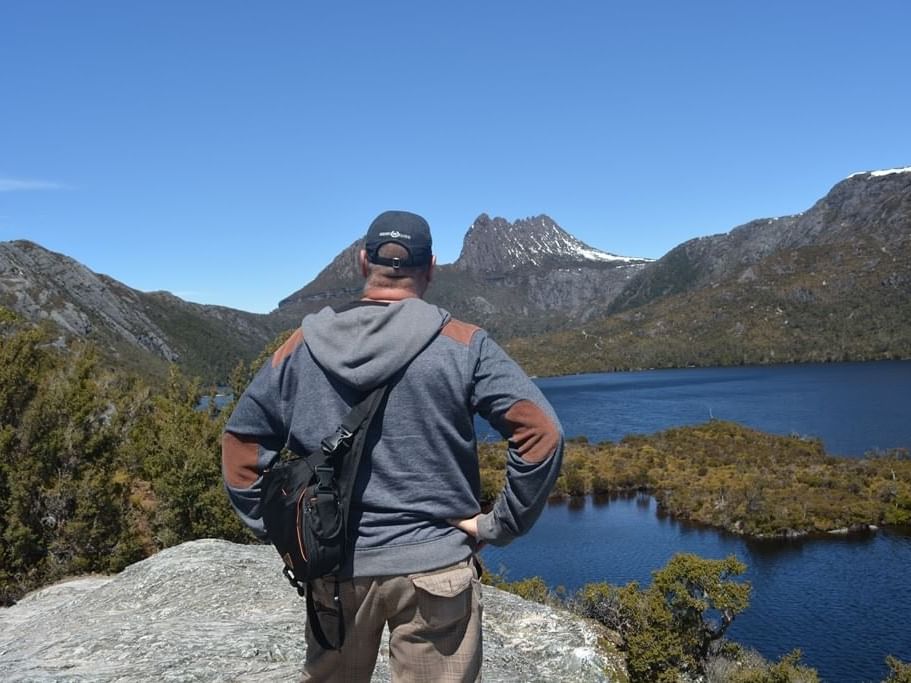
Day Four: Freycinet Lodge to Cradle Mountain Hotel
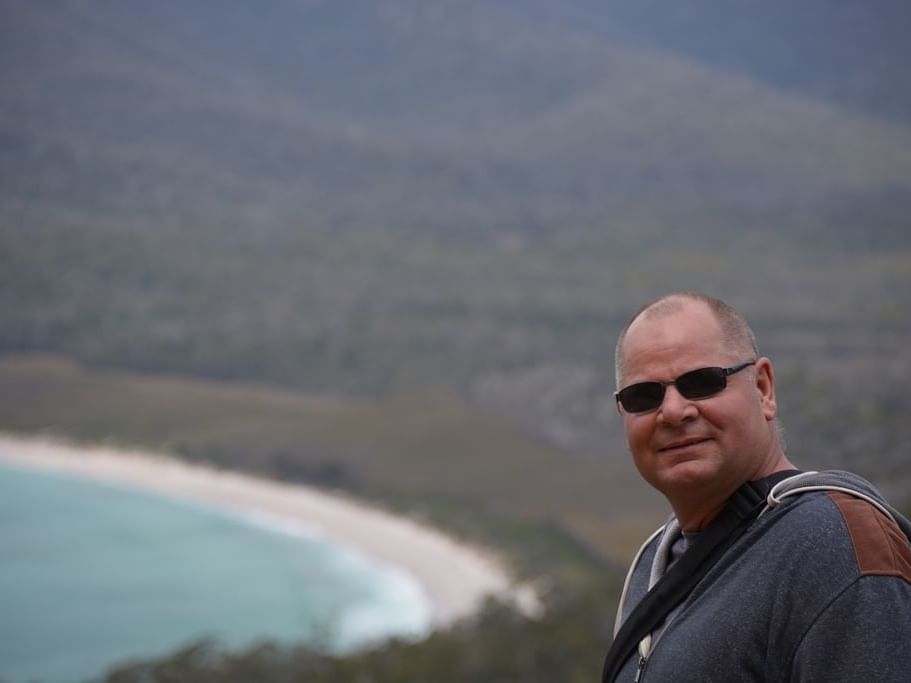
Day Three: Strahan Village to Freycinet Lodge

Day Two: Devonport to Strahan Village
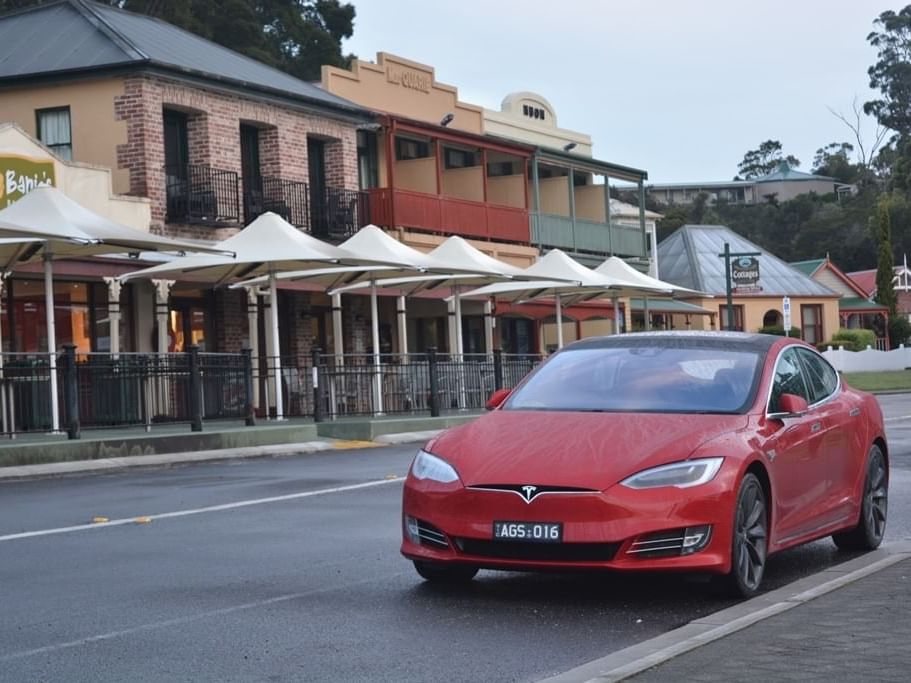
Day One: Melbourne to Hobart on the Spirit of Tasmania

With fewer than a thousand permanent residents, visitors to quaint Strahan often wonder how they will find enough things to do. In fact, most find that they haven’t allowed enough time to enjoy all the attractions of the region. Whether you wish to appreciate the Strahan region’s natural beauty or cultural heritage, here are the top ten activities to fit into your itinerary.
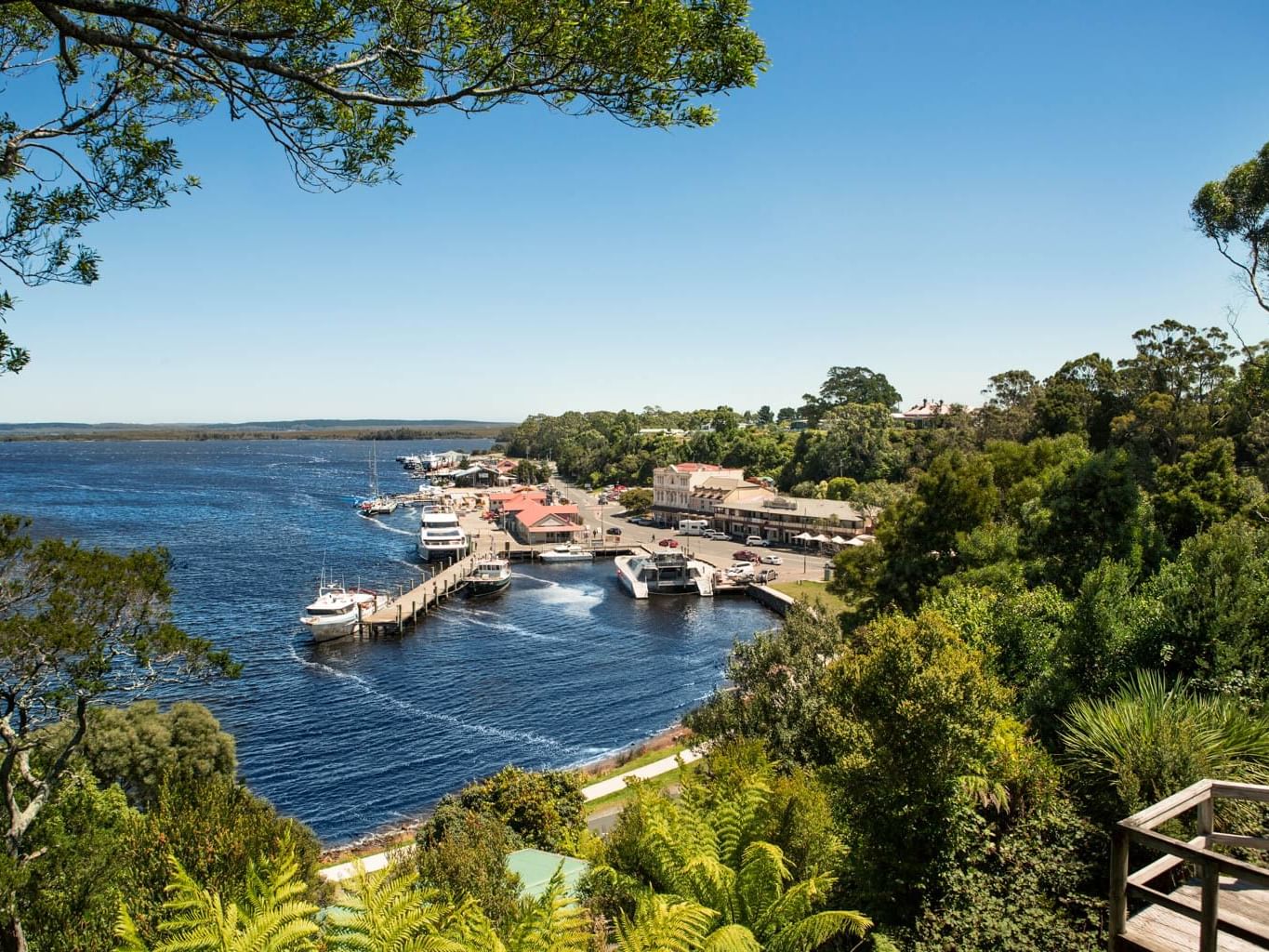
In such a vibrant little seaside town, it's not hard to find things to do in Strahan. Whether it's rest and relaxation one's after? Or perhaps it's a bit of adventure and exploration? Or maybe it's a thirst for knowledge and history? The best thing to do sometimes, is ask the locals where to go!
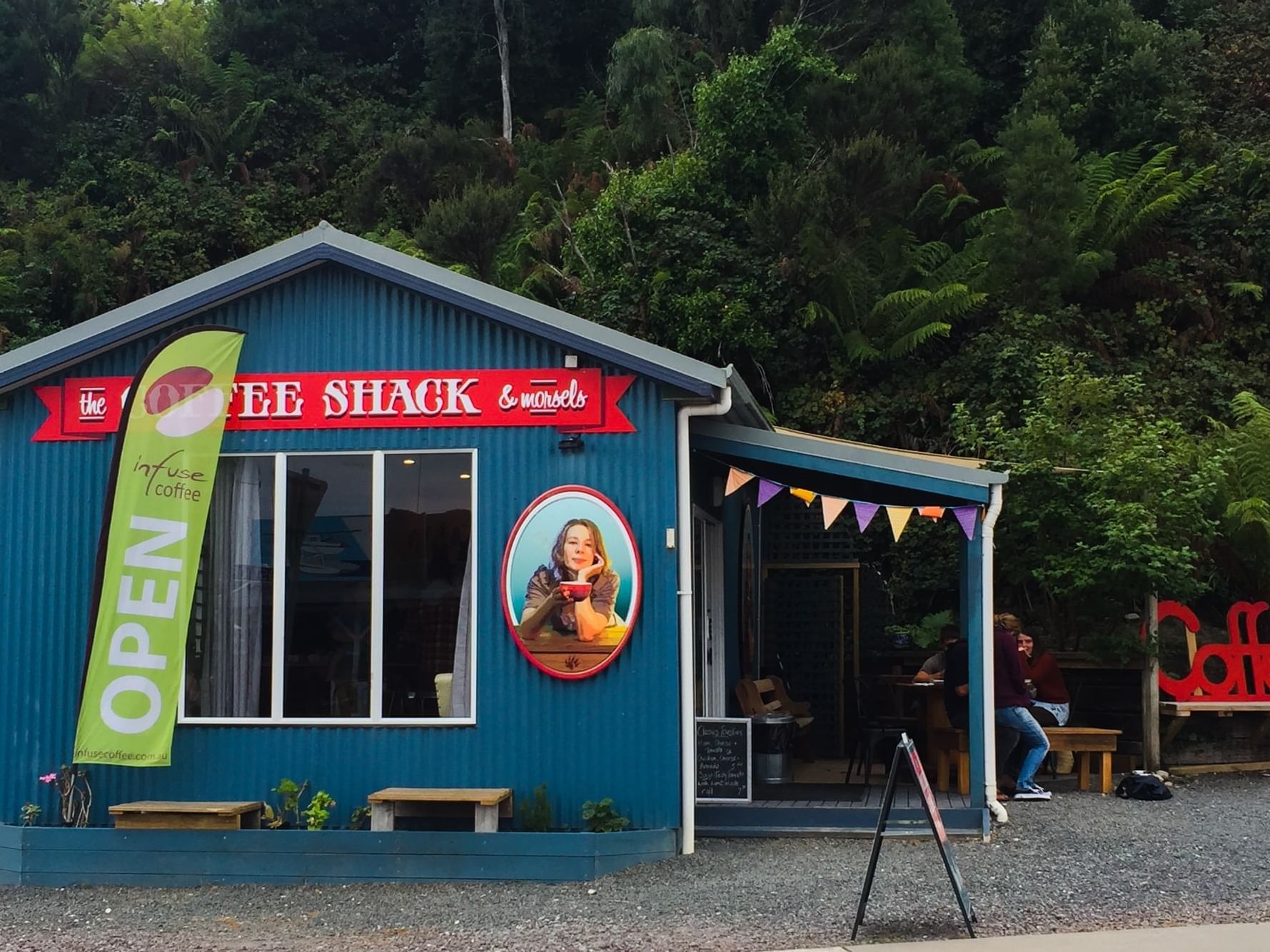
When looking for itinary ideas for Tasmania a local’s perspective is always recommended. One of the incredible things about living in such a small state is that travelling to its hotspots can all be done by car!
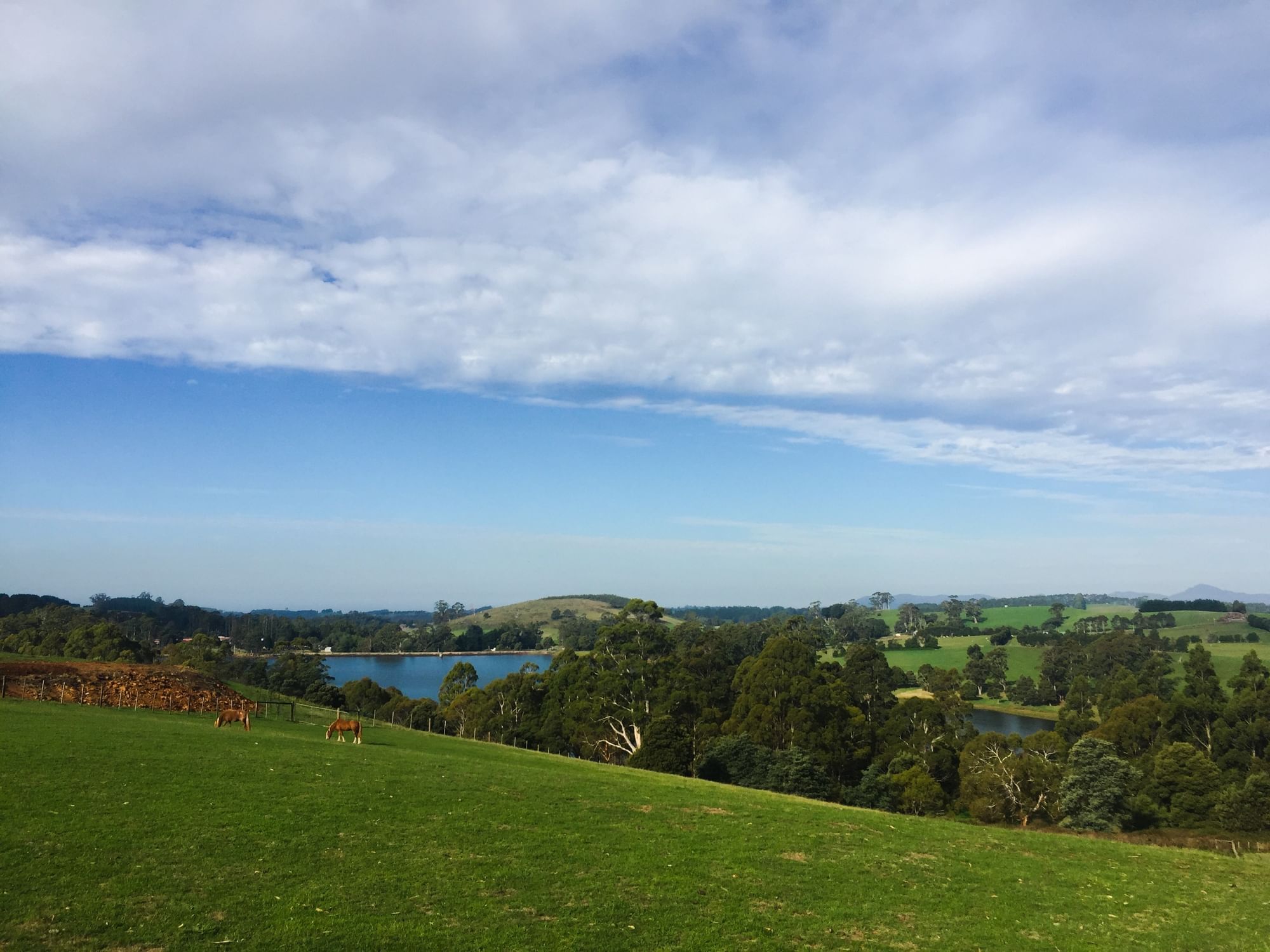
When waking up in Strahan, one will be greeted by the blissful sound of complete and utter silence. But don’t waste time in bed! Each moment here is precious and provides a completely unique perspective of the beauty Strahan has to offer.
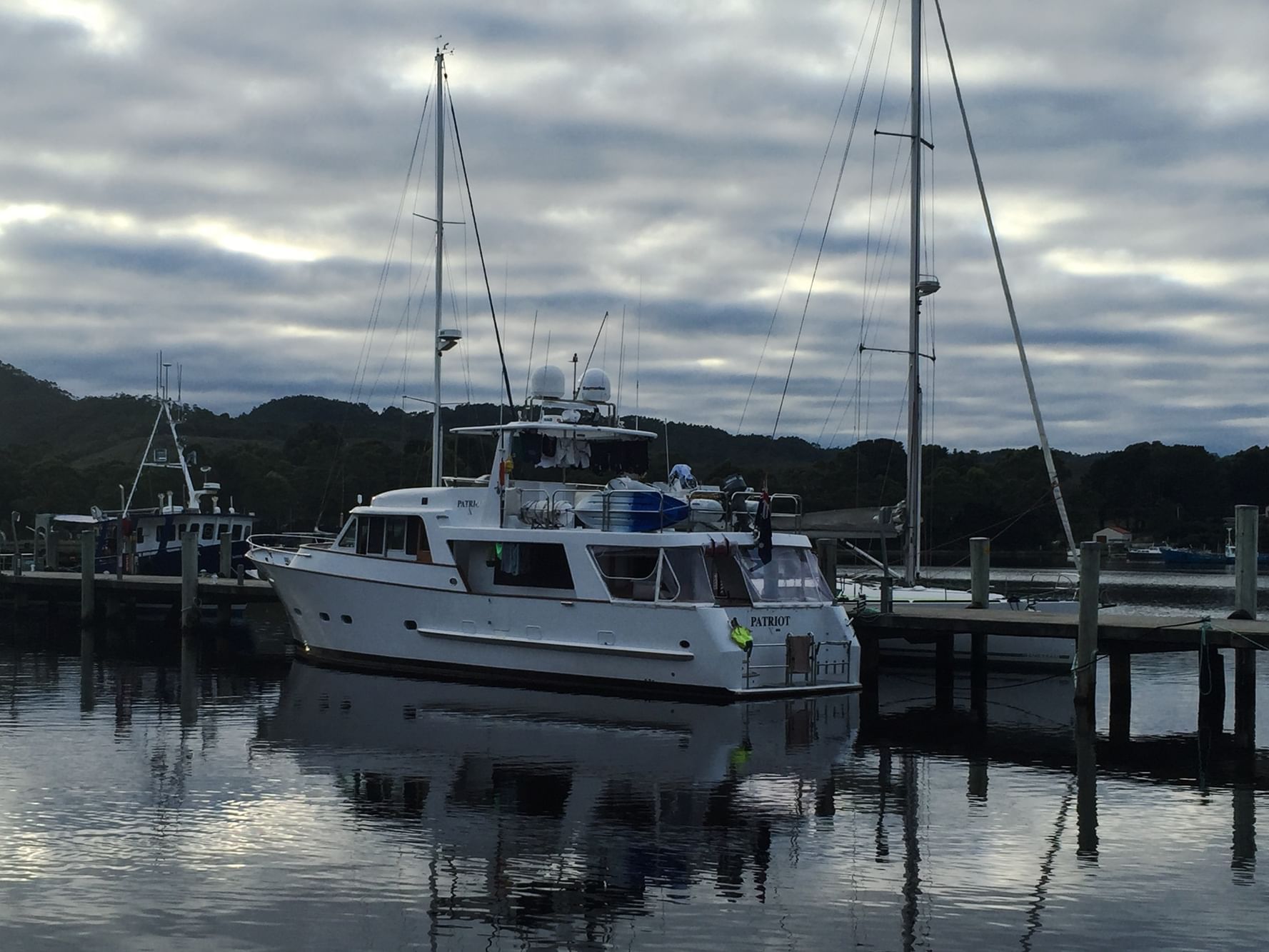
Tasmania is renowned for its world-class fresh local produce and Strahan restaurants feature the best of what’s on offer! When looking for places to eat in Strahan, then a short 5-minute trek up hill is View 42° Restaurant. Nothing good in life comes easy, right? Rest assured a few minutes uphill is well worth the view and food awaiting.
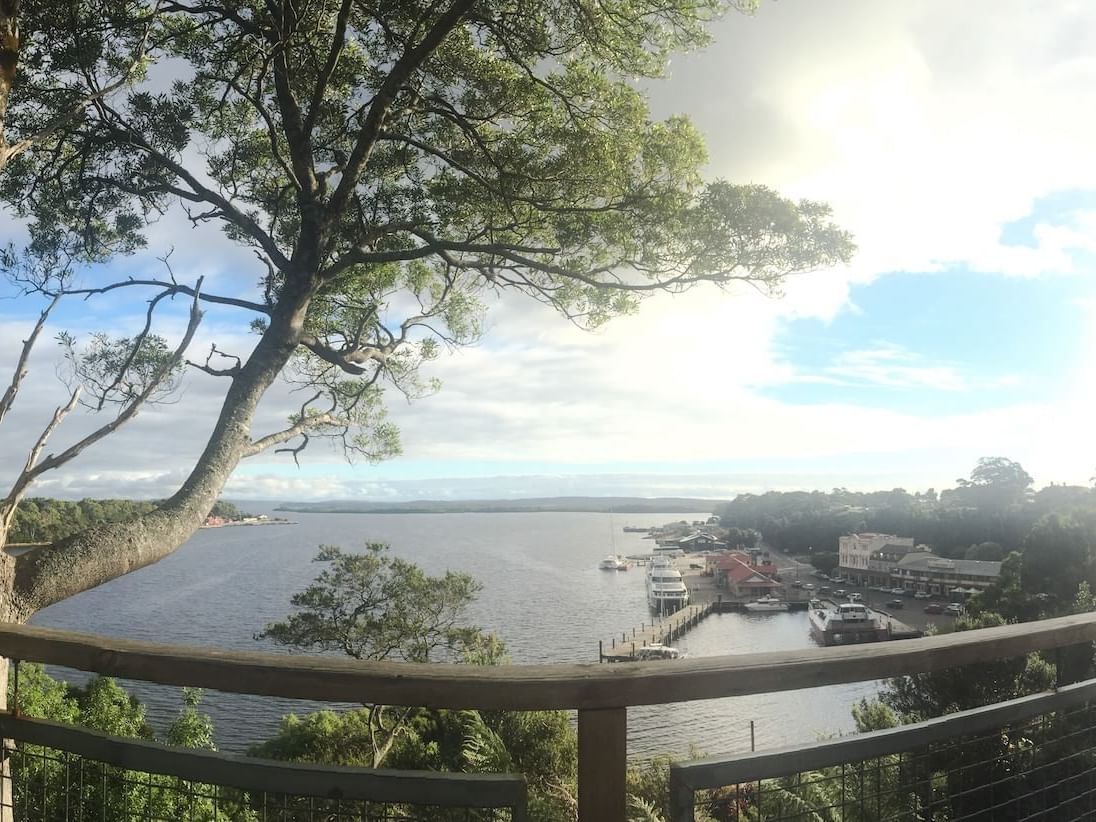
Strahan has many tales to tell from its 140-year history. In its heyday, this isolated town attracted a variety of characters as its logging and mining industries developed. The historic Strahan cemetery stands as testimony to Strahan’s colourful past.
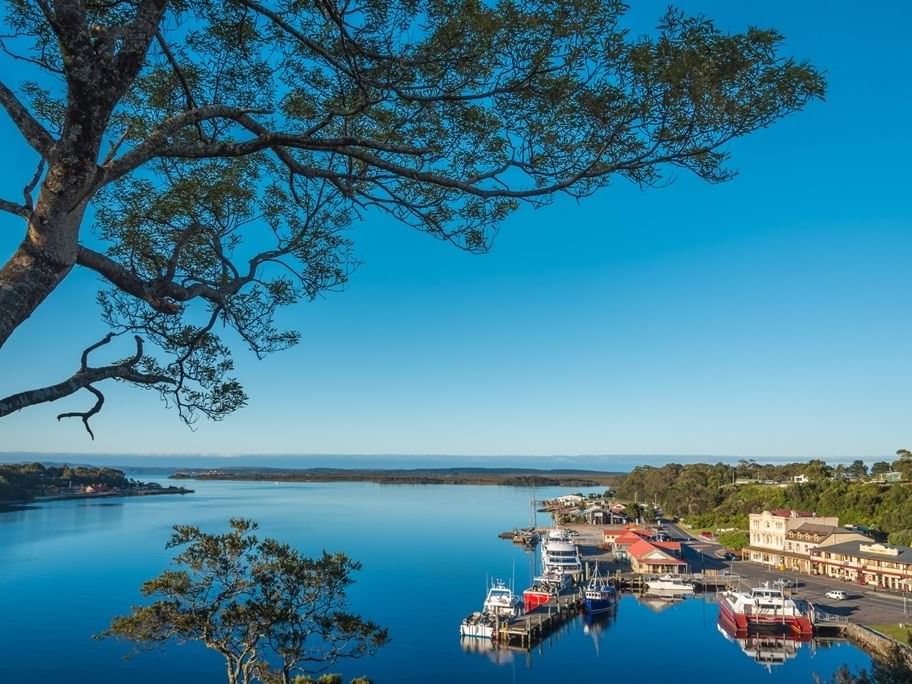
There is no better way to appreciate Mother Nature than spending a day rafting on Tasmania’s iconic rivers. King River Rafting offers tours on the Derwent River near Hobart and King River near Queenstown. They can also organise custom tours for groups if you have a particular request.
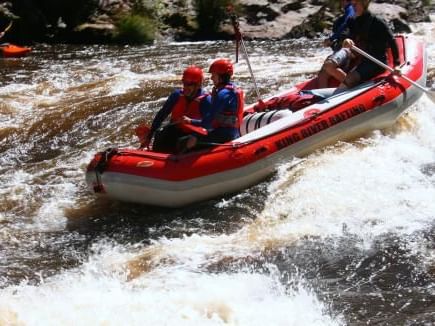
For those who prefer to see some of Tasmania’s less touristed spots, the hamlet of Derwent Bridge provides a wonderful stopover when travelling between Hobart and Strahan. Its main attraction is The Wall in the Wilderness, a masterful work of art which has almost reached completion. Not only will you see an extraordinary artwork, but you will appreciate Tasmania’s past through the epic tales contained within.
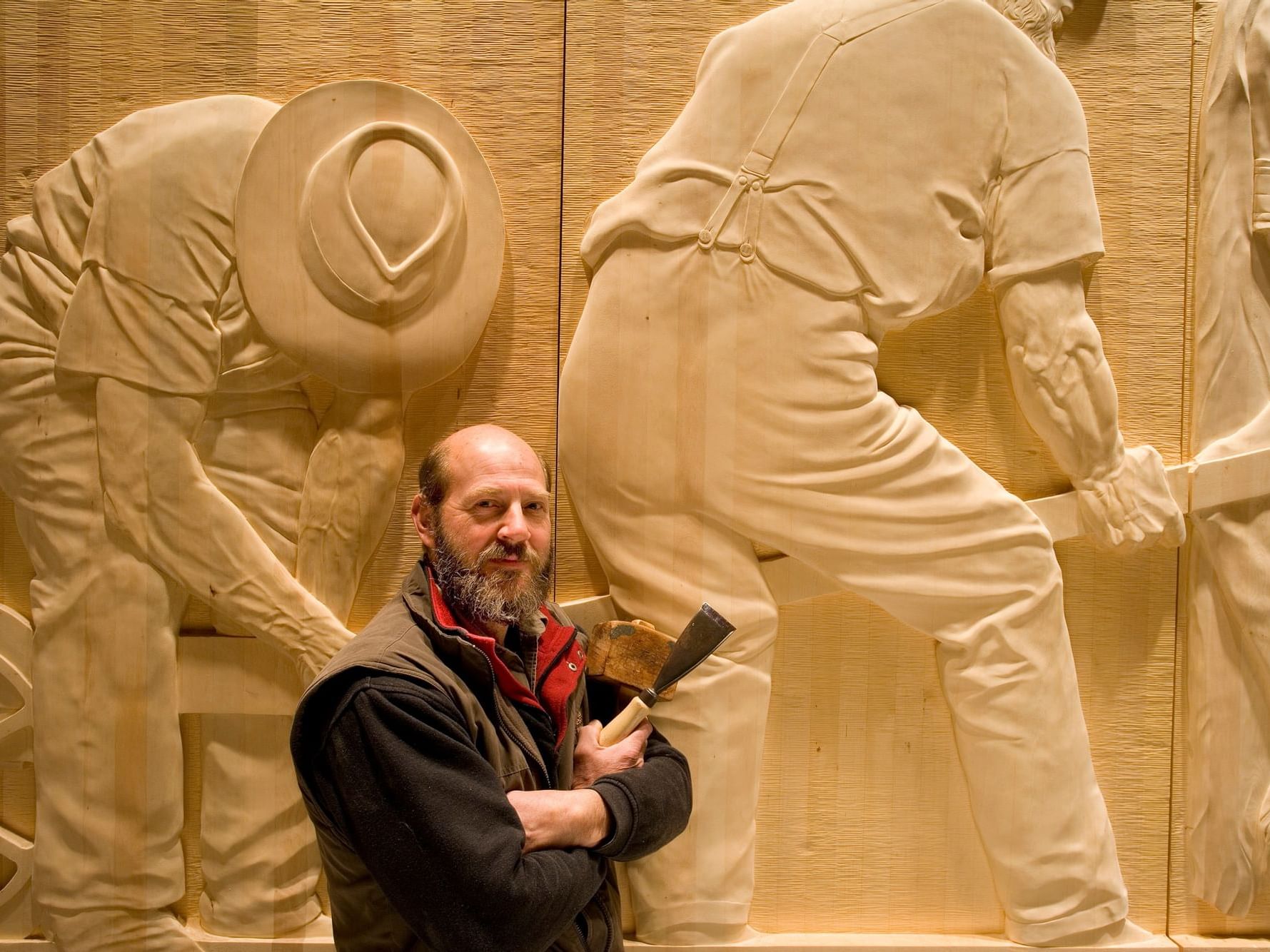
Travellers on Queenstown’s breathtaking West Coast Wilderness Railway know Lynchford Station as the location of a former gold mine where they have the chance to pan for gold themselves. Recently, a ceremony was held here to present the railway with a highly coveted Engineering Heritage International Marker. This remarkable feat of engineering has previously won awards; however, this latest recognition has only been given to seven Australian constructions.
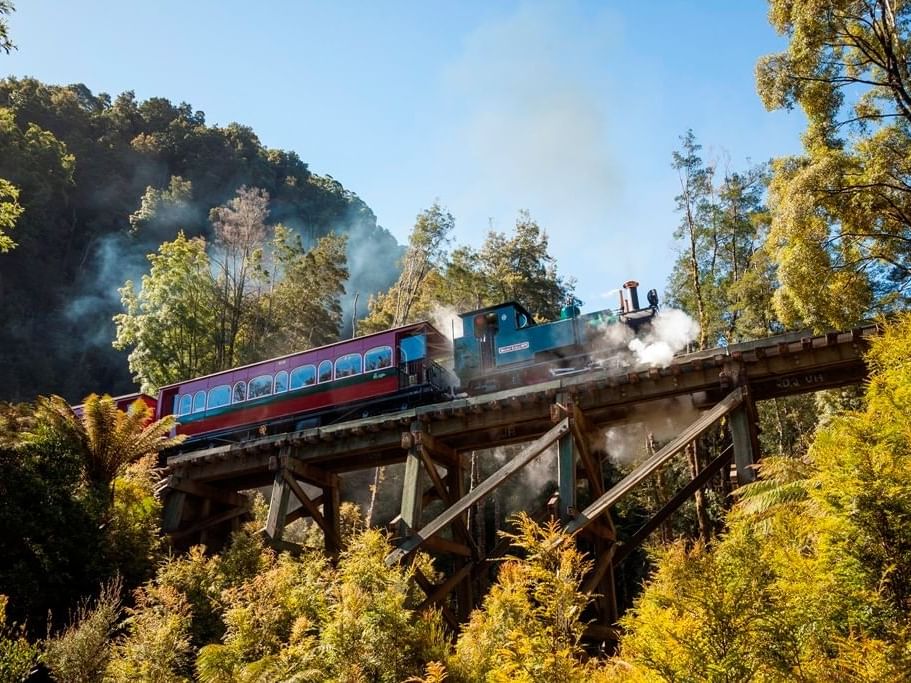
If you feel that you have overindulged on Tasmania’s gastronomic delights and are seeking a little active fun, the Henty Sand Dunes near Strahan will definitely give you a workout. Considered to be the most magnificent sand dunes in Tasmania, this “locals’ secret” is signposted on the Zeehan-Strahan road.
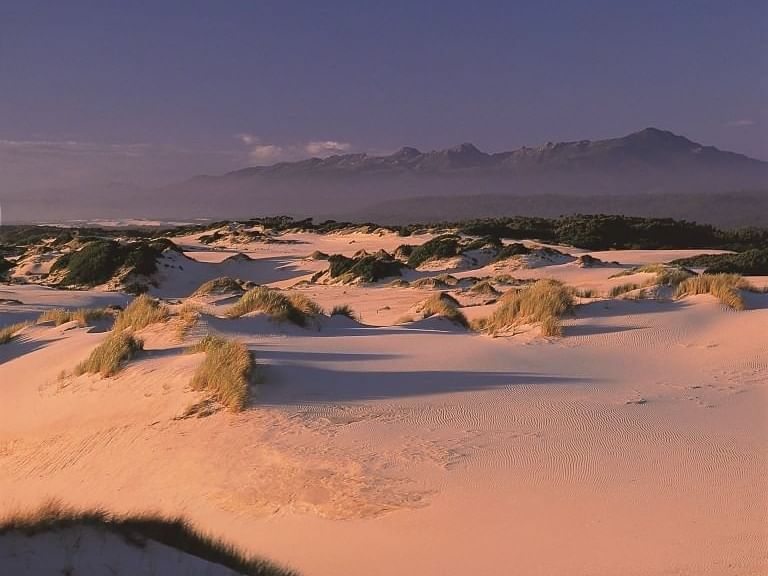
Finding Morrison's Huon Pine Sawmill isn’t difficult for Strahan visitors. When strolling along the esplanade, you won’t be able to resist the delightful fragrance of freshly-cut Huon pine. This is a fourth generation family business which harks back to the romance and pioneering spirit of early loggers who navigated intrepid rivers to obtain the precious timber.
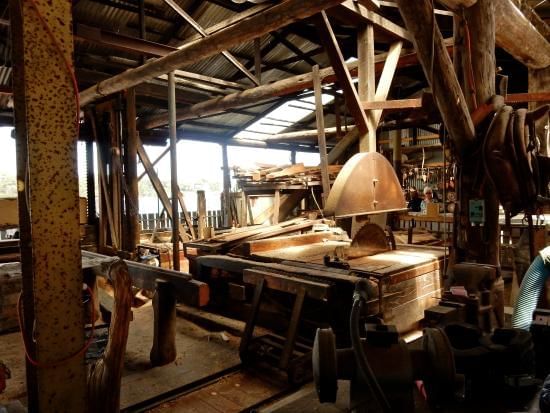
The West Coast is home to some of the most magnificent scenery in Tasmania and has an incredibly rich history to match. Strahan is the perfect base to explore this; whether you are visiting for a few nights, or have a little more time on your hands; there are wonders and wanders to suit all.
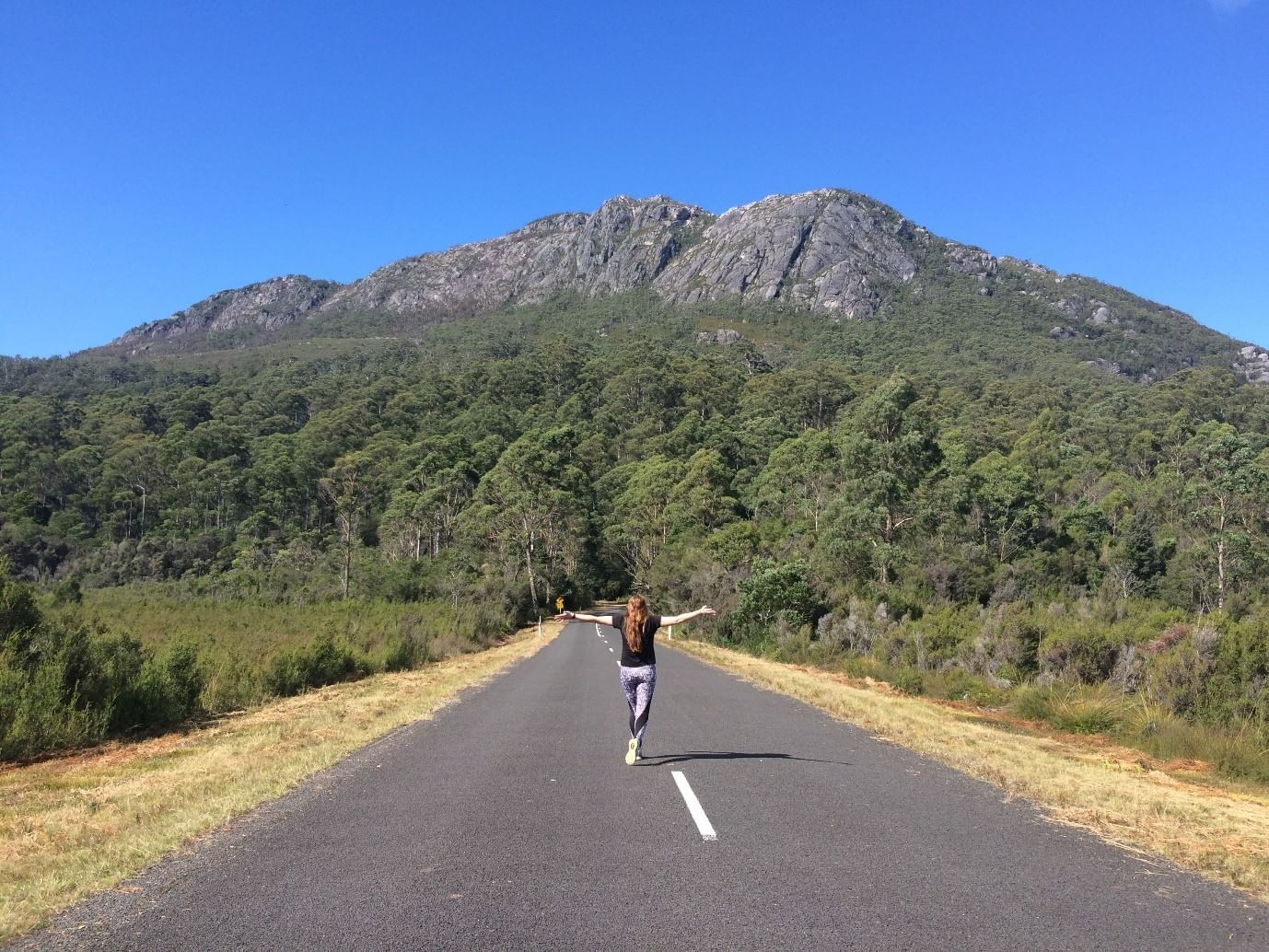
When planning your tour of Tasmania, include the rugged West Coast with its windswept beaches, cold climate rainforests and fascinating history. The small town of Strahan is an ideal base allowing you to enjoy the sense of isolation that comes with staying in one of the world’s most far-flung places.
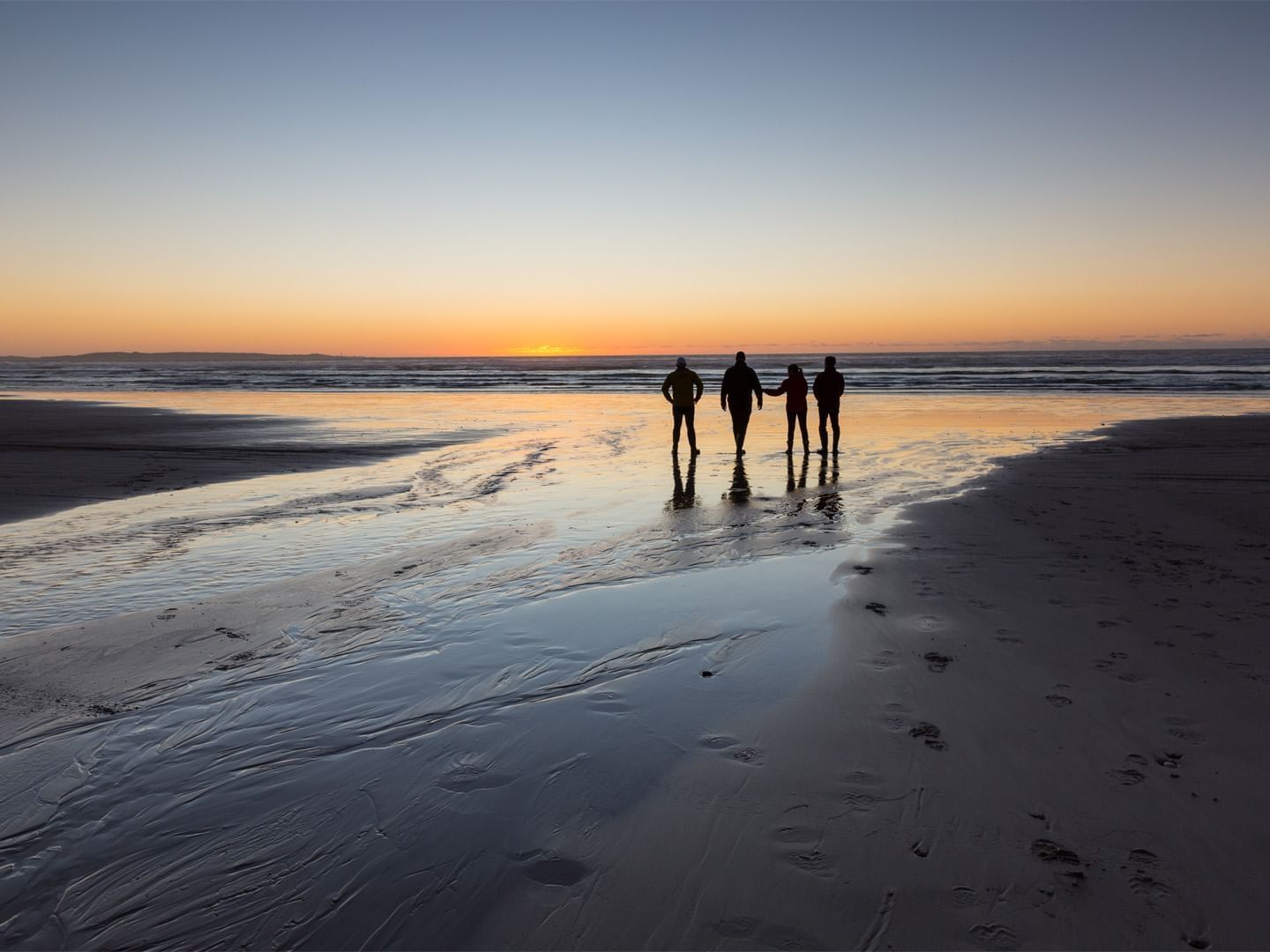
In order to fully appreciate your cruise to the Gordon River and Sarah Island, make sure you see the play The Ship That Never Was. Held in the Richard Davey Amphitheatre near the Strahan Tourist Information Centre, this highly-entertaining performance brings history to life as you learn the fate of the Sarah Island convicts. Audiences have been coming to see this play for over twenty-two years so this is definitely an experience not to be overlooked.
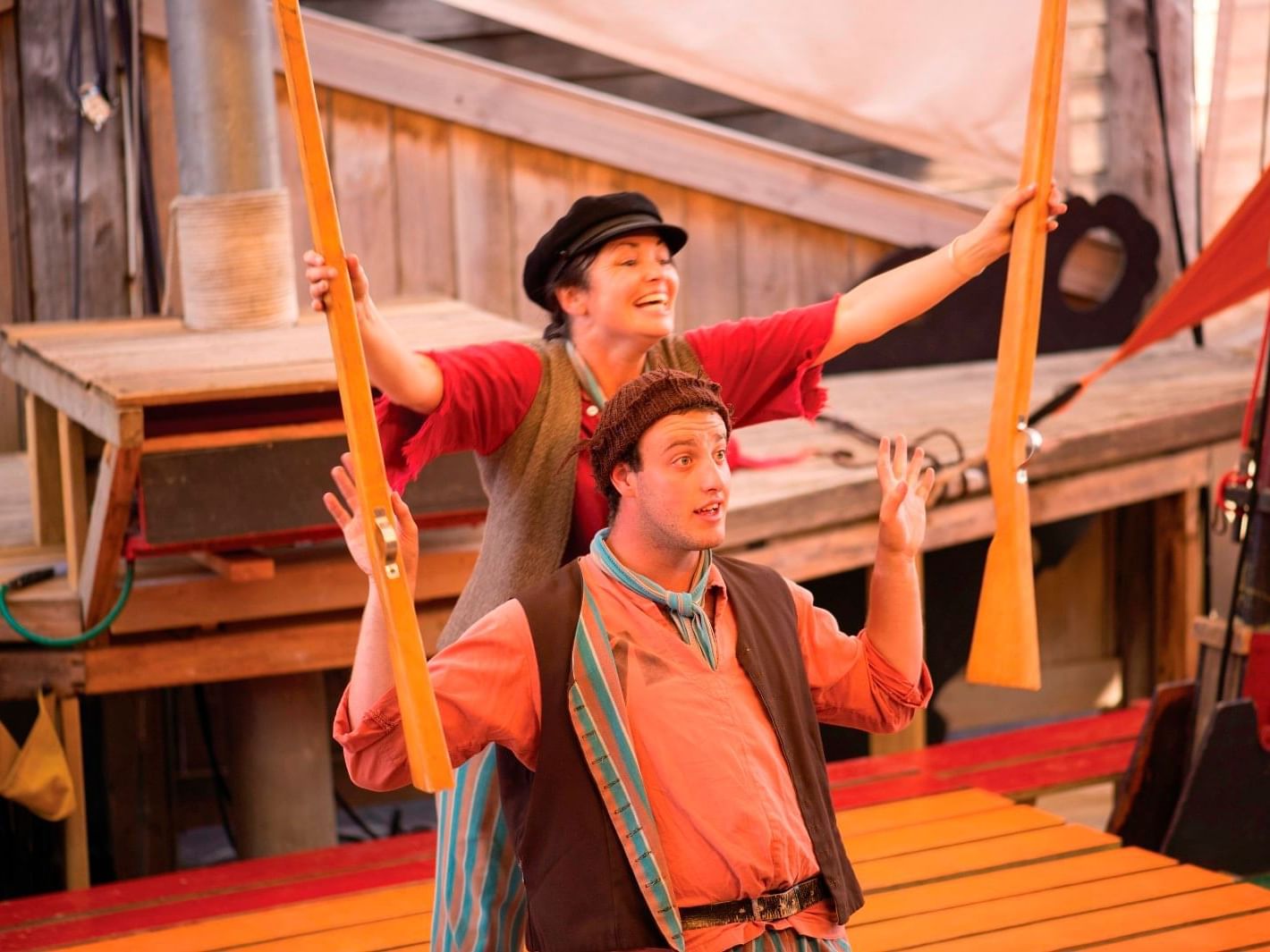
The Huon Pine is only found in Tasmania. Some Huon Pines are over 3000 years old, an incredible feat as this slow-growing tree only increases in girth by two millimeters every year. The waterproof, bug resistant wood was attractive to early European settlers. The story of Huon Pine captures the hardships and ingenuity of these pioneers.
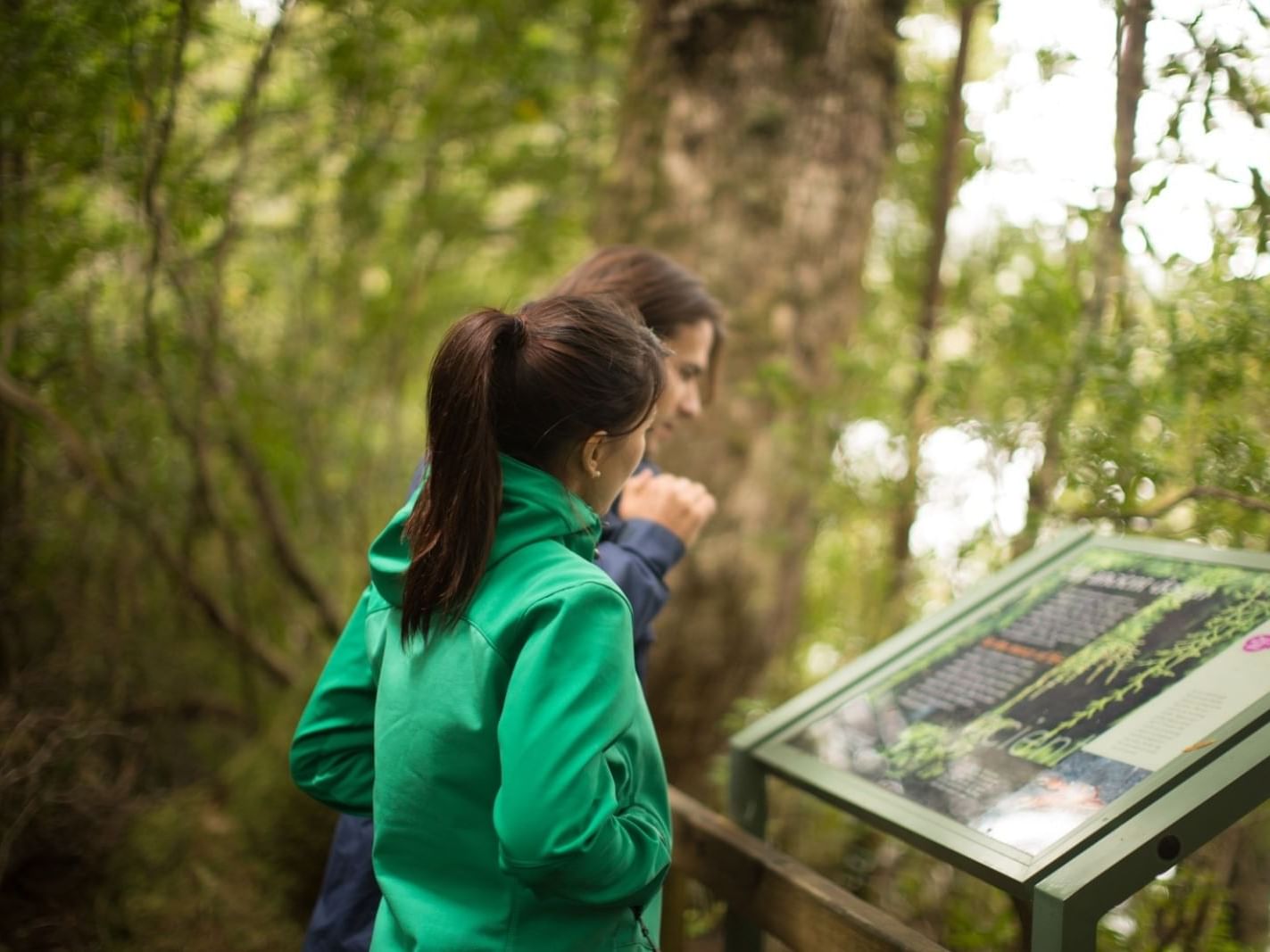
Carved out of the mountains that rise starkly above it, Queenstown has an old mining town feel. Nearby, spectacular cold climate rainforests can be seen; however, the hillsides were denuded in the past exposing bare pink and grey granite boulders. Learn more about this delicate tug-of-war between nature and industry by visiting some local sites that may not initially come to mind as tourist attractions.
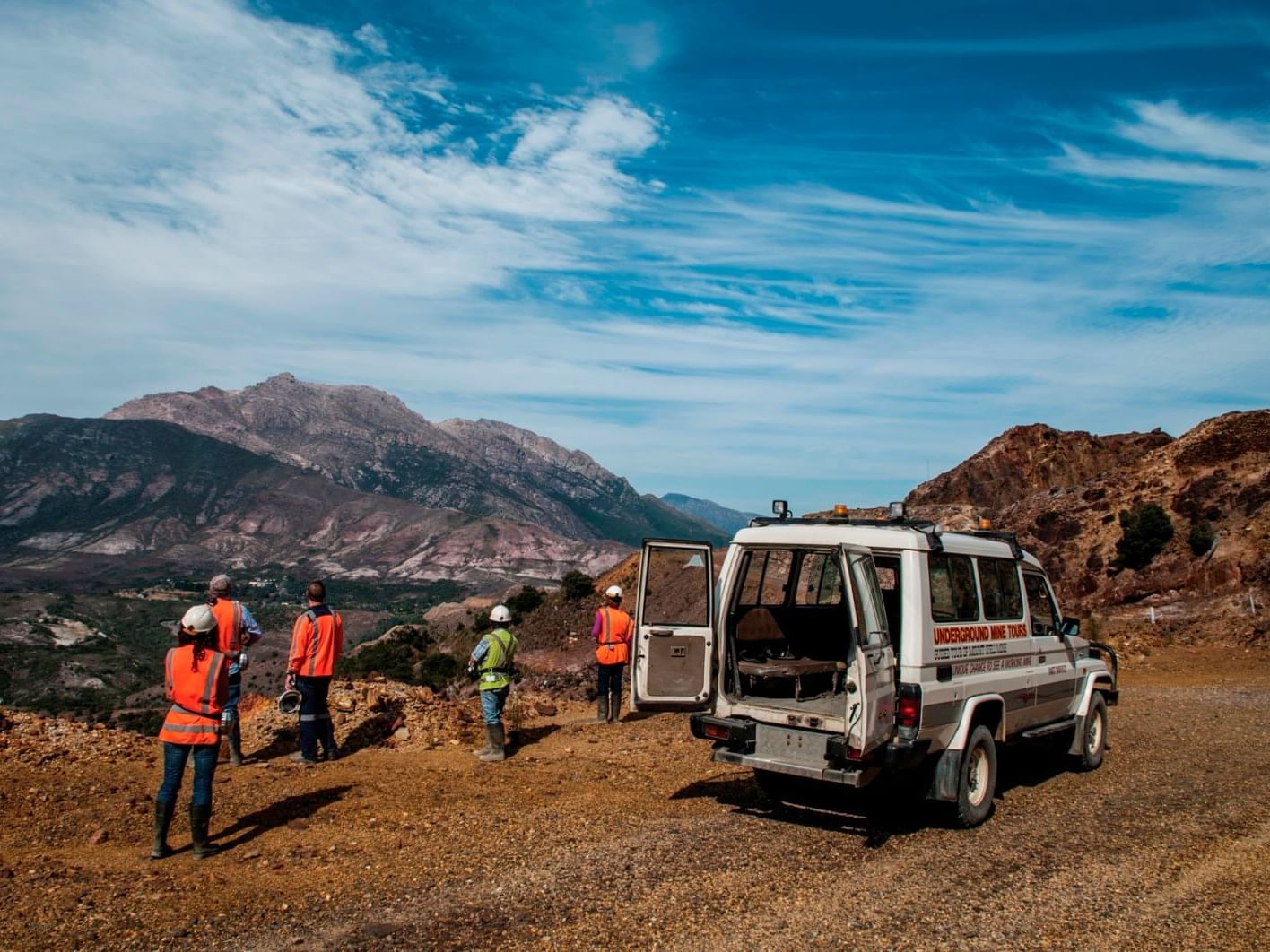
Exploring the cool temperate rainforest is one of the most popular activities in Strahan on Tasmania’s west coast. A cruise is one option to view this pristine wilderness. Another exciting way to gain a different perspective of the ancient forest’s majesty is via the West Coast Wilderness Railway. Train buffs, history enthusiasts and nature lovers will definitely not want to miss this unique experience.
